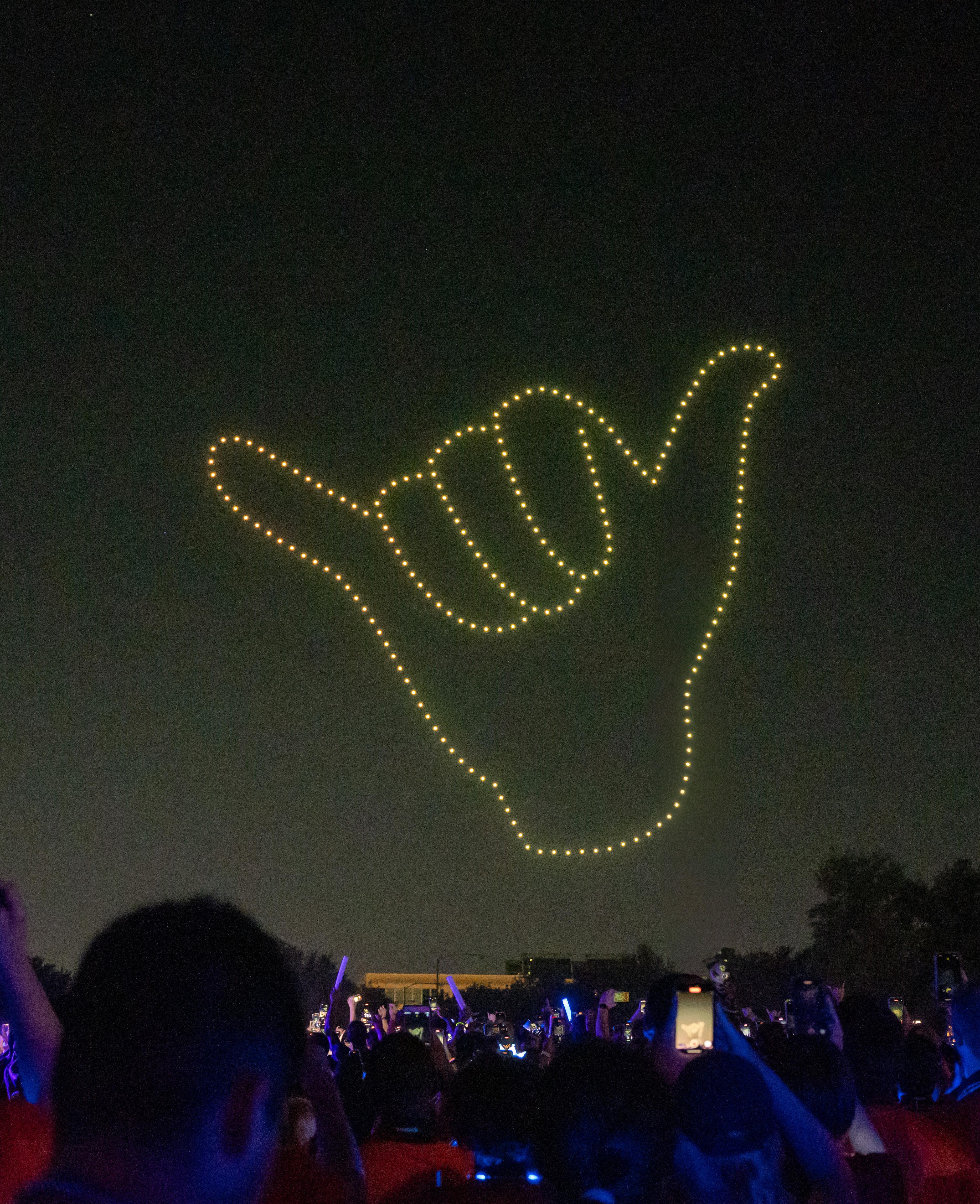ADVOCACY ENGAGE
A career built on
Angelica Cervantes, YWCA San Antonio

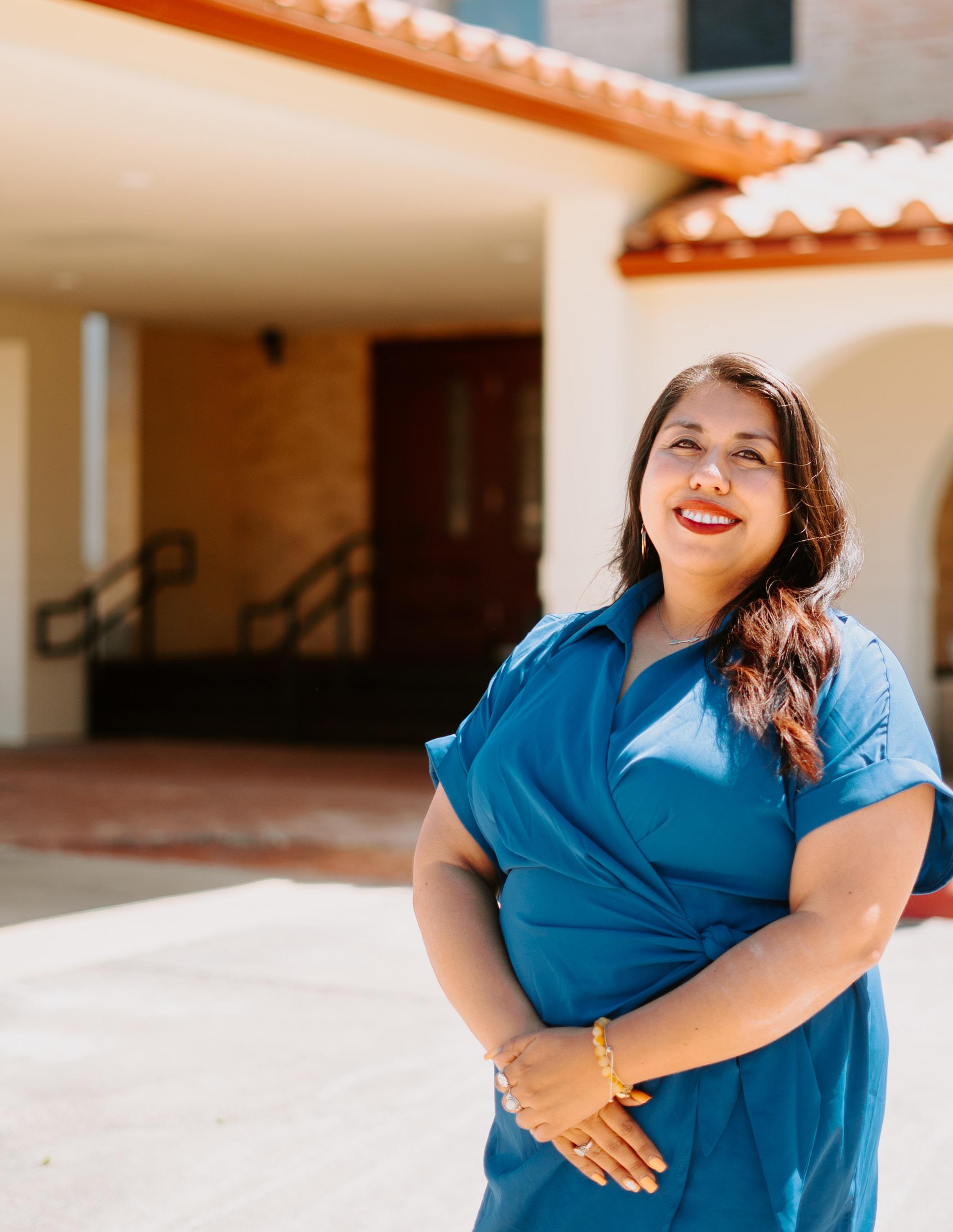
Lynne
Rhonda BeLue, PhD
Associate Dean for Community Engagement and Partnerships
Kelly Garza
Assistant Dean of Fiscal Administration and Operations
Erica Sosa, PhD
Associate Dean for Research Success
Johnelle Sparks, PhD
Associate Dean of Faculty Success and Administration
Rob Tillyer, PhD
Associate Dean for Graduate Student Success
Department Chairs
John Bricout, PhD
Nancy Cheak-Zamora, PhD
Sandor Dorgo, PhD Kinesiology
Richard Hartley, PhD Criminology and Criminal Justice
Sandra Morissette, PhD
Psychology
Francine Romero, PhD
Public Administration
Ray Swisher, PhD
Sociology and Demography
iHCAP
Center for Community Based and Applied Health Research
Erica Sosa, PhD
Rhonda BeLue, PhD
Institute for Demographic and Socioeconomic Research
Kara Joyner, PhD
Institute for Health Disparities Research
Fernando Riosmena, PhD
Texas Demographic Center
Kara Joyner, PhD
Helen You, PhD (Interim Director)
Stay Connected
To keep up with general news about the College for Health, Community and Policy, we encourage you to visit hcap.utsa.edu. If you would like to receive our e-newsletter, please make sure we have your email address (send to: hcap@utsa.edu).
To submit class notes and photos (1-5MB), please email hcap@utsa.edu. We reserve the right to edit submissions.
Engage is published bi-annually for alumni and friends by the College for Health, Community and Policy. If you have opinions or comments on the articles, please email hcap@utsa.edu or write to us:
Downtown campus
UT San Antonio College for Health, Community and Policy
501 W. Cesar E. Chavez Blvd.
San Antonio, TX 78207
Main campus
UT San Antonio College for Health, Community and Policy
1 UTSA Circle
San Antonio, TX 78249
Engage staff
Writers: Amanda Cerreto
Editors: Amanda Cerreto, Lynne Cossman, Julia Wolf
Designers: Peggy Lo, Gregory Schneider
Cover story photography: Daniel Rendon
Individual photos seen in alumni profiles have been supplied courtesy of the respective alumni



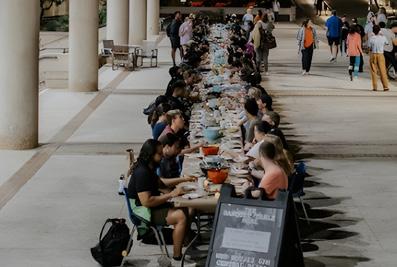

Dean’s Note
At the College for Health, Community and Policy, we are guided by a deep belief in the power of people working together to build healthier, more equitable communities. As you explore this issue of Engage, I hope you’ll be inspired by the stories featuring our students, alumni and faculty.
Our cover story introduces an alumna who is leading transformative work to improve health equity for women facing the highest health risks. You’ll also read about two alumni opening clinics and nonprofits on San Antonio’s South Side to expand access to care where it’s needed most.
We’re excited to showcase new initiatives underway at the college: from a summer undergraduate research program and our new health administration degree, to a project using ChatGPT in public health research. We also celebrate health and the arts, exploring how creativity and healing intersect to support holistic well-being.
A monumental development on the horizon is the merger of UTSA and UT Health San Antonio, which has taken effect by the time this magazine is in your hands. UT San Antonio will combine more than 17,000 faculty and staff, 40,000 students and 350 academic programs, alongside nearly $470 million in annual research spending.
This integration has created one of the largest and most powerful public research
universities in Texas. What does this mean for San Antonio and for HCAP? This merger positions our city as a leader in innovation, education, healthcare and economic growth. By combining UTSA’s strengths with UT Health San Antonio’s biomedical research and clinical capacity, we will form a university that is a national model for integrated excellence.
For our college, this evolution means broader opportunities: greater access to cross-disciplinary research collaborations, expanded infrastructure for health equity work and enhanced ability to attract talented faculty, students and partners committed to serving South Texas.
We’re building a future where education transforms communities, healthcare innovations serve the underserved and discovery drives public impact. Together, we’re contributing to a healthier, more equitable San Antonio.
Thank you for being part of this transformative moment with us.


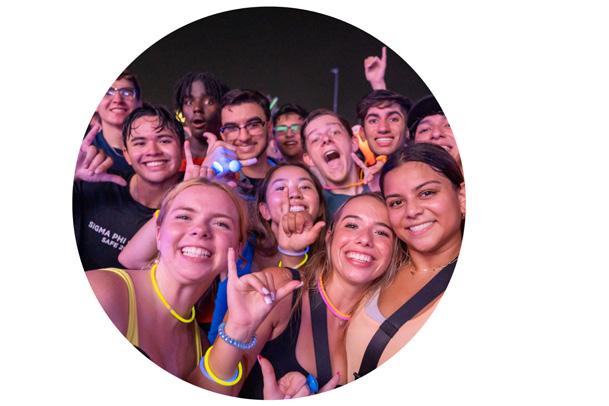
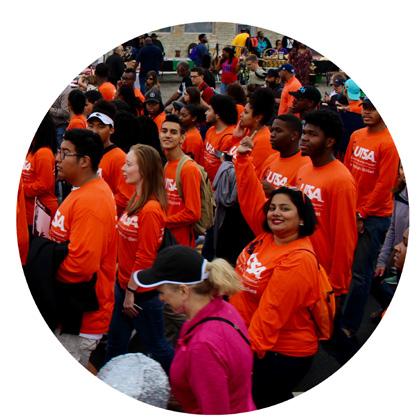
Dean’s Advisory Council

The Council’s mission is to drive strategic direction while promoting the college’s mission to community partners and stakeholders. The vision of the Council is to offer support and collaborate through local, regional and nationally recognized experts across the community, health and policy sectors.
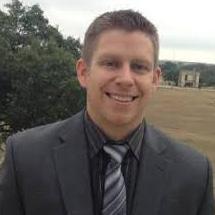
Carl Negley (Board Chair) Owner/President, Medvolution, Inc.

Phil Beckett, PhD CEO, C3 Health Information Exchange
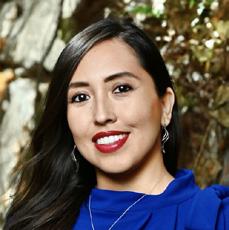
Ariana Rocha Garcia, PhD Former City Councilwoman, City of San Antonio

Dr. Ana “Cha” Guzman Consultant, Strategic Partnerships, Inc.
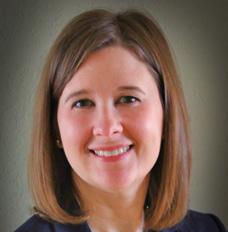
Carol Huber, DrPH, MBA Institute for Public Health, University Health
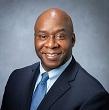
Claude Jacob, DrPH, MPH Director, City of San Antonio Metropolitan Health District


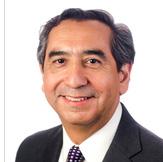


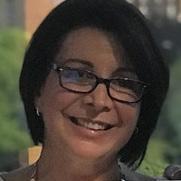
C. Leonard Karge
President, Chenega Environmental, Healthcare & Facilities Strategic Business Unit
Jimmie O. Keenan, MSN, RN, FACHE, FAAN, Major General (Ret) US Army
Sr. Vice President, Enterprise Clinic Operations, WellMed Medical Management Inc.
George Pedraza '87
Sr. Vice President and Private Client Advisor Bank of America
Chris Talley
Senior Advisor; Chief Communication Officer; Senior Consultant, Crosswind Media and Public Relations; Encore Leadership Advisors; Talley Communication Strategies; Integral; Hawksbill Group
Jaime Wesolowski
President and CEO, Methodist Healthcare Ministries of South Texas
Elsa Guerra Williams
Vice President of Membership and Engagement YMCA of Greater San Antonio
Total Internship hours: 139,103
SOCIAL WORK: 51,795
More than 139,000 internship hours completed by students *internship hours are calculated based on the most recent data NUTRITION & DIETETICS:12 ,459 PUBLICADMINISTRATION:2,400
PUBLIC HEALTH: 49,200
SOCIOLOGY: 600
KINESIOLOGY: 100 CRIMINAL JUSTICE:22,549
Advisory Council Spotlight

COL (Ret) David Gilbertson
Gilbertson currently serves as the President and CEO of Virtual Health Informatics, bringing over 25 years of experience in healthcare and information technology to the table.
“I was fortunate to be in a healthcare environment for my military career,” Gilbertson said. “Toward the end of my career, I was very much involved in the development and deployment of the electronic health records the military uses now."
In addition to IT support systems, Gilbertson also helped to run a large research lab and burn unit at Brooke Army Medical Center, conducting research on battlefield health.
While his career has been spent in medical informatics, Gilbertson has held a deep interest in and regard for academia. He served as a faculty member for the Baylor program at Fort Sam Houston, creating the 70 Delta course, the career course for the Medical Service Corps officers. He has served as the CIO for the University of Connecticut, in all sides of the from business to research to teaching aspects.
Gilbertson served nine years on the Board of Directors for CommuniCare and volunteers for Stanford Office of Undergraduate Admissions.
“After my term limit was up at CommuniCare, I wanted to stay involved in both healthcare and academia, so I thought it would be a nice fit to work with HCAP,” he said. “I can help determine what employers are looking for, and what we need our students to be able to do.”
Gilbertson looks forward to directly helping students, particularly in choosing a career path and illustrating how they can tailor their learning experiences to what the job market needs.
“I would really like to help them understand how to evolve in their curriculum around AI, information sharing, information interoperability and then from an informatics perspective, bring in data science,” he said. “Any academic pursuit or career now is going to be data driven, and so they really have to understand what data is telling them, what it's not telling them, and how to get information out of your database.”

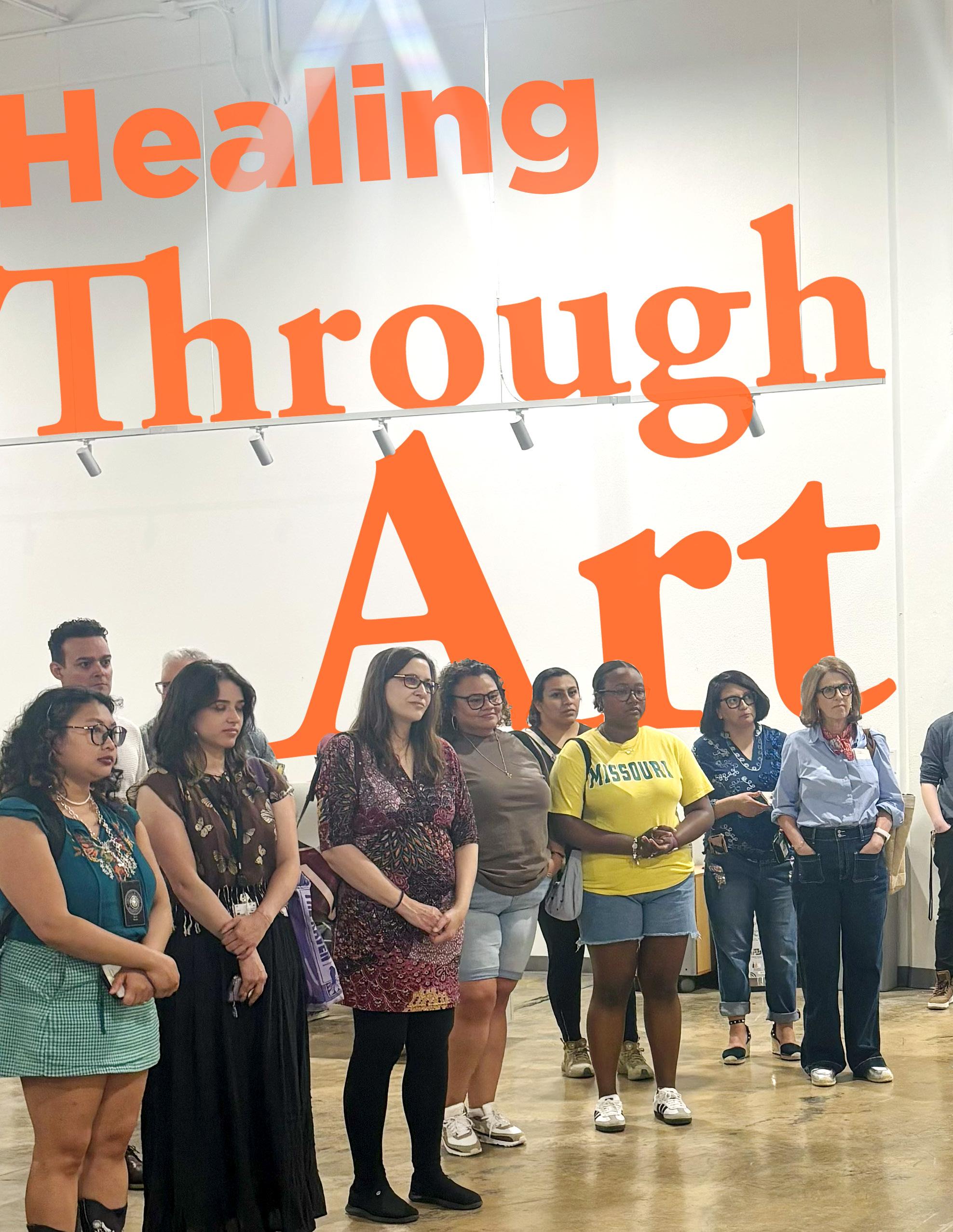
A New Vision for Health and Community
At HCAP, the intersection of health, community and the arts is taking center stage. Spearheaded by Rhonda BeLue, Associate Dean for Community Engagement and Partnerships, and Emilie Amrein, Founding Executive Director of UT San Antonio Arts, this vision goes beyond traditional academic partnerships. BeLue is working to deepen connections between the college and city organizations, creating innovative opportunities that bridge public health, creative expression and community engagement.
At the heart of this effort is the “Art is Healing” program, a collaborative initiative that unites UT San Antonio departments with local artists and organizations to promote well-being through art. Designed as an interactive and inclusive experience, the program
invited community members to explore art as a vehicle for healing, reflection and connection.
The event featured the support of UT San Antonio First Lady Peggy Eighmy and San Antonio First Lady Erika Prosper Nirenberg, underscoring the
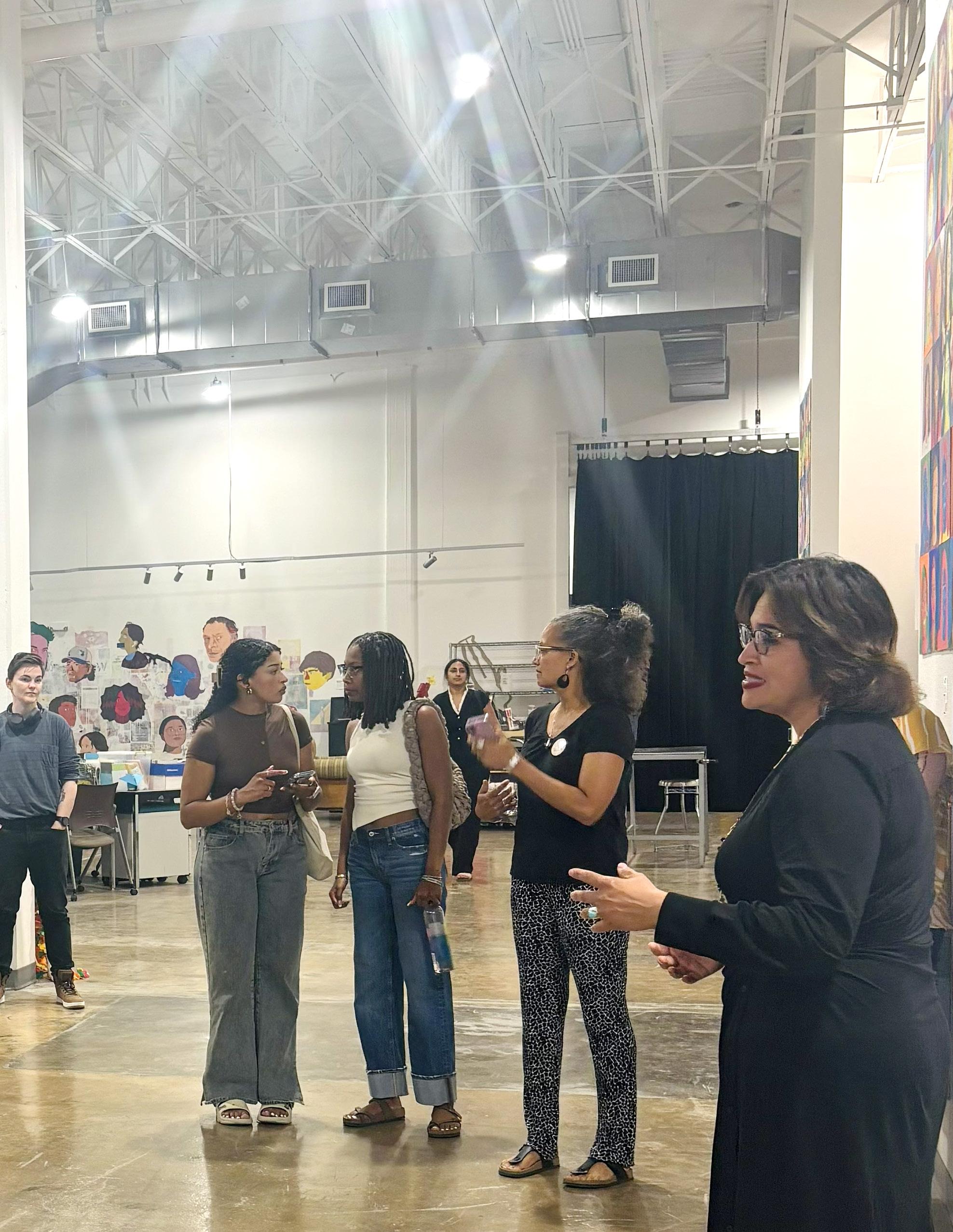
shared commitment to community wellness across institutional and civic leadership.
Participants engaged in a variety of art-based healing activities, including Button Making with Lilith Tijerina, a San Antonio native and multi-

disciplinary teatrista, Live Portraits by Say Sí teaching artist Reese Lundquist, Theatre of the Oppressed sessions led by Amalia Ortiz, Tejana actor/writer/activist and winner of the 2020 American Book Award for Oral Literature, Bird Song Interactions with artist and UT San Antonio Professor Mark Menjivar, Storytelling and Poetry with San Antonio's own Robin Johnson and more movement-based workshops and dance activities.
“A big thank you to Say Sí, and the amazing artists and speakers who gave testimony to the ability of arts to heal,” BeLue said.
This initiative complements UT San Antonio’s growing Medical Humanities program, an interdisciplinary academic pathway that integrates natural sciences, social sciences, humanities and the arts. Together, these efforts reflect a broader shift in how health is approached at the university: as something shaped not only by medicine and research, but by creativity, empathy and collective experience.
As BeLue and her colleagues continue to build partnerships with city organizations, the College for Health, Community and Policy is positioning itself at the forefront of a holistic model of health.
Where Health and Leadership Meet
UT San Antonio’s Bachelor of Science in Health Administration
At the intersection of community care and cutting-edge analytics, UT San Antonio is shaping the next generation of healthcare leaders to serve their communities in San Antonio, South Texas and beyond. Launched in the fall of 2024, the Bachelor of Science in Health Administration is a launchpad into one of the most impactful fields today: public health. The curriculum is also aligned with national standards set by the Association of University Programs in Health Administration (AUPHA), ensuring current students are well-prepared to enter the competitive job market.
“Our B.S. in Health Administration program is designed to rigorously train students in the business, policy, and leadership skills essential for managing today’s complex healthcare organizations,” said Nancy Cheak-Zamora , chair of the Department of Public Health.
Offered jointly through the Carlos Alvarez College of Business and the College for Health, Community and Policy the program blends business acumen with a deep understanding of healthcare systems. Students learn how to manage operations in various healthcare organizations, analyze population health data and develop practical solutions for real-world challenges –particularly those affecting San Antonio and South-Central Texas.
“The degree plan here is preparing me so much,” said Star Lang, a current student. “All the classes are showing leadership and responsibility, and that it’s okay to be uncomfortable sometimes. I’m learning how to take initiative and be a leader.”

That emphasis on leadership runs through the program’s core. Students are trained to become ethical, effective professionals in diverse roles, from healthcare business analysts and consultants to long-term care administrators and public health project managers. The program’s design also reflects the unique health needs of the region. From addressing disparities in border communities to improving access to care, students tackle challenges head-on with tools in healthcare finance, operations management, data analytics and health information systems.
Future graduates will step into entry-level jobs in hospitals, community health centers and even in the public sector, to name a few. Additionally, to help prepare current students, local healthcare organizations such as the new state-of-the-art UT Health San Antonio Multispecialty and Research Hospital are serving as internship host sites, among others. These host sites provide a real-world and supportive environment for students to complete the required 120-hour internship while enrolled in the health administration program.
“Public health is all about protecting the community,” said student Ellison Morgan. “With health administration, the classes are showing you how the community plays a huge part in your role as a health administrator.”
Beyond the classroom, partnerships with health-centered organizations and associations like the National Association of Latino Healthcare Executives (NALHE) give students real-world insight. “In my partnership, my goal is to make sure students are exposed to real-life scenarios,” said Kalia Z. Aparicio, NALHE-San Antonio chapter president. “You can learn how to run your own clinic or manage a hospital, but there are other opportunities like consulting or working for government agencies.”
UT San Antonio’s program is also a participant in the American College of Healthcare Executive’s Health Education Network which provides additional resources, at no cost, to students.
“The benefit of this unique joint degree program is that we combine our strengths and provide students with outstanding training in both business and health from experts in the field,” said Joseph Broschak, chair of the Department of Management. “Our program curriculum is also aligned with national certification standards, which gives our students a competitive edge.”
If you’re looking for a career that combines leadership, purpose, and real-world impact UT San Antonio’s Health Administration program offers just that.
Or, as Morgan puts it: “If you want a career that can really make a difference and change the world, the health administration program is really for you.”
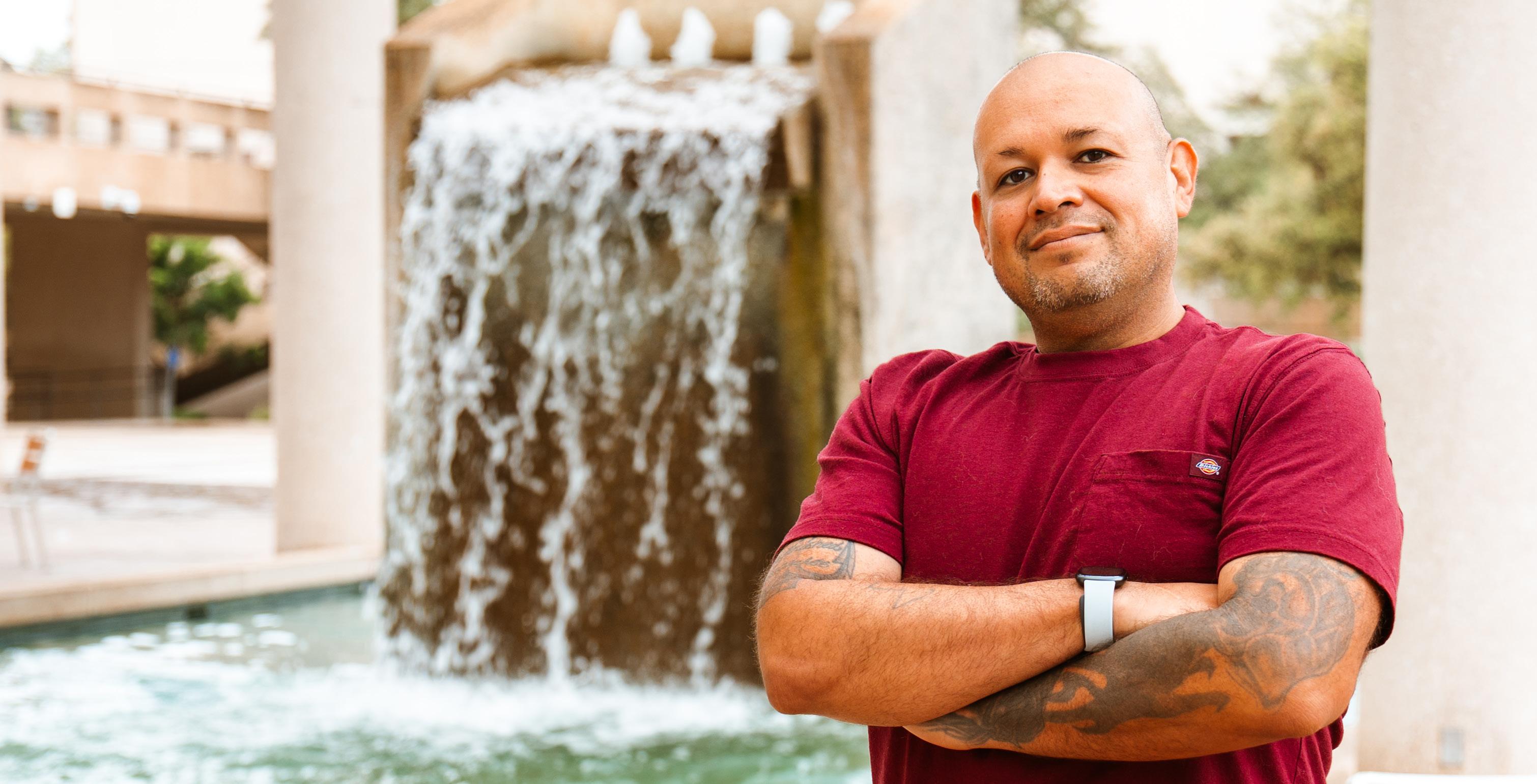
UT San Antonio researcher empowers community health workers with ChatGPT
Adolph “AJ” Delgado , a bridge to faculty postdoctoral fellow in the UT San Antonio Department of Public Health, has spent his career analyzing data and using quantitative method to examine the root causes, patterns and impacts of health disparities in diverse communities. Now, he’s collaborating with community-based health organizations to use AI tools to empower them to learn and use the same analytic tools and research methods to directly address the health disparities affecting their communities.
Delg ado provides specialized training in generative AI to staff who oversee their organization’s health data. These generative AI tools help them translate complex data into actionable insights, strengthen their grant proposals, create data-driven reports and provide suggestions on interventions supported by data driven approaches. Ultimately, staff are learning to use AI to translate data into real-world applications to bridge the health gaps that impact Texas communities.
Funded by the Institute for Integration of Medicine and Science (IIMS), Delgado initially developed a six-week pilot program that integrates ChatGPT, a generative AI tool, to guide community health professionals in analyzing data. Participants learned to use RStudio, a statistical software, alongside ChatGPT to enhance their data analytic skills. The hybrid program merged online and
live sessions to empower professionals to analyze CDC Atlas HIV datasets to create dynamic reports using R code.
Two community partners who completed the program work for Community Initiatives and Population Health Department at University Health in San Antonio and the Latino Commission on AIDS, a national non-profit coalition founded in 1990. The work these organizations do rely heavily on data but are often limited in capacity in data analysts. Moreover, data analysts often serve in additional roles beyond their responsibilities in data management and data analytics.
“I wanted this project to answer two questions,” Delgado said. “How are these organizations currently analyzing their data, and can generative AI help them be more efficient?”
With these goals in mind, Delgado set out to simplify the work of community health professionals to make their jobs easier by teaching them how to use generative AI to write R code for RStudio (also known simply as R) to analyze large datasets more easily and efficiently.
“When organizations can efficiently analyze data, it not only improves the time to generate data-driven reports but also reduces the time and mental effort required of data when working with hundreds of rows and columns of data,” Delgado said.
Delgado also recruited UT San Antonio students to work on the project. Rebeca Martinez, who recently graduated with a master’s degree in psychology, jumped at the opportunity to join the workshop as part of her role as graduate research assistant.
“This was an amazing opportunity to collaborate with professionals from various community-focused fields and support them in developing skills with R, including coding, filtering and mapping datasets,” Martinez said. “Working with R, which is a free and extremely versatile statistical software, has not only strengthened my technical expertise in data analysis but also emphasized the importance of using accessible tools to conduct meaningful research.”
Delgado’s initiative sets the stage for future experiential learning programs in data analysis within the nonprofit sector. Since the pilot program concluded last year, he has transitioned the effort into a community of practice in generative AI, allowing continued support and expanding access to more nonprofits and organizations. One of the participants from the pilot program is already capitalizing on this opportunity by actively engaging in the monthly community of practice, where members explore different AI tools and their practical applications, such as using Perplexity for research.
Susannah Harris, a public health Data Analyst at University Health, explained how Delgado’s workshops and trainings have helped her in her role. “There’s a
hesitancy to use AI in our roles,” she said. “But once you’re educated on how to ask it questions, and how to verify it, it’s such a time-saver and a helpful tool.”
Harris has used tools like Perplexity and ChatGPT to help analyze data, ensure conference proposals hit required metrics and finetune literature reviews. The promise is immense, she said – if you are taught the right ways to use it.
“Understanding data is only as complicated as the person explaining it,” Delgado said. “We use numbers all the time. When we purchase items from Amazon, we probably spend more time looking at ratings than the actual product we’re purchasing. We're using data to make the best decisions. I believe that most health data can be translated in a way that the everyday consumer can use to make better choices about their health.”
Delgado has been part of the UT San Antonio community since 2009, earning his bachelor’s in psychology, a master’s degree in health and kinesiology, and a PhD in applied demography, all from the College for Health, Community and Policy. He also has a master’s degree in quantitative methods from UT Austin.

“How are these organizations currently analyzing their data, and can generative AI help them be more efficient?”
“My interest in public health was a natural result of all my degrees,” Delgado explained. “It is the perfect discipline that allows me to apply all of my professional background and academic interests.”
Delgado sees this project as a catalyst for lasting change, especially in the age of AI. By equipping community healthbased organizations with the skills to efficiently use generative AI, Delgado hopes that he can help build a more dataproficient workforce in San Antonio, especially in nonprofits that serve as hubs for access to health care for underserved communities.
Ultimately, this work is about people. With better data-driven strategies and generative AI tools, these organizations can make a tangible impact, fostering a healthier San Antonio.

The HEART of HCAP:
Dr. Lyssa Ochoa and Carl Negley
The HEART of HCAP highlights the people at the center of our mission. These are the students, faculty, staff, alumni and community partners who go beyond expectations to serve San Antonio and improve lives across our city. Through research, service, advocacy and education, they embody the core values of HCAP and remind us that real change starts with real people. In every feature, you’ll meet someone whose work is helping to build a healthier, more equitable future for all.
In San Antonio, health outcomes can vary significantly depending on where you live. Studies have shown that people living in South San Antonio often face higher rates of chronic disease, fewer healthcare resources and, in some neighborhoods, a life expectancy up to 20 years shorter than in parts of the North Side. These differences are shaped by a range of factors, including income, education and access to health services. But while the challenges are real, so are the efforts to close this gap. Across the city, dedicated individuals are working to build healthier communities – people like Carl Negley and Dr. Lyssa Ochoa, whose work is making a meaningful difference for families in South San Antonio.
Dr. Lyssa Ochoa is a board-certified vascular surgeon and founder of the San Antonio Vascular and Endovascular Clinic (The SAVE Clinic), located in South San Antonio. Her partner in the mission is Carl Negley, MBA, who serves as the clinic’s Administrator. Together, they’re not just running a clinic, but building a movement to close the health gap in underserved communities.
Ochoa, born and raised in the Rio Grande Valley, was no stranger to health disparities when she began practicing medicine. But her time in private practice, where she was the only female surgeon in a large group, exposed her to the depth of inequality right in her own city.
“The disparities were not only in the types of patients I was seeing, but in their outcomes,” she recalled. “Patients in their 30s, in the South Side, were having more heart attacks, strokes, amputations and cases of diabetes.”
Negley encouraged Ochoa to open her own practice, and together they mapped out the specifics: how many patients they’d need to see to break even, how they could operate clinics on the South Side and more. The more they talked about it, the more Ochoa realized that she could potentially help close the gap in healthcare that had become so stark.
“I thought, if I'm going to do this, then I need to be purposeful and make a difference,” she said.
Within a year, they launched the SAVE Clinic with eight staff members, a lab, an office and a clear mission. Their clinic locations were not chosen at random; they were guided by public health data.
“We used a map of diabetic amputations and zip codes to dictate where we put our clinics,” Ochoa said of the eight clinics they built. “It didn't take long for me to realize that these areas of town also struggle with lots of social issues. Transportation is a big one, so being able to put offices that are even just 10 miles closer helps to get them to us sooner.”
As the SAVE Clinic grew, so did the scope of their work. They tackled transportation challenges, addressed food insecurity and met patients where they were. But another challenge arose: the closure of one of the two major hospitals serving the South Side. It underscored the region’s urgent need for more than just acute care beds.
“There is a huge disparity south of downtown San Antonio,” said Negley. “Below a certain line, the lifespan for citizens is 20 years less than those living above that line.”
“ We want CHEST to be the place where, if you’re attending a board meeting, it’s because we’re actually doing the work. Not just talking about fundraising. We are ready to work.”
Rather than accept a patchwork solution, Negley and Ochoa envisioned something bigger: a community-rooted investment in long-term health equity. Out of that vision, the Center for Health Empowerment in South Texas (CHEST) was born, a nonprofit dedicated to improving health outcomes in South San Antonio through education, access, collaboration and lasting investment. In just one year, they built a blueprint, secured city funding and finalized the nonprofit’s formation.
CHEST’s mission is grounded in the five Social Determinants of Health: economic stability, education access and quality, healthcare access and quality, neighborhood
and built environment and social and community context. These are the real levers of health change, something Ochoa understands all too well.
“Healthcare outcomes are affected 80% by the social determinants of health, and only 20% by direct medical care,” Ochoa explained. “As a vascular surgeon seeing them at the very bottom, there's no way I was going to really have a means of influencing that.”
CHEST is still in its early days, but community members and students are already being invited to join the effort. Whether your background is in health, education, urban planning or social work, there’s a place for you.
“We need teams of people who want to be involved in different areas,” said Negley. “You can visit the site and sign up based on your interests, such as education, health care, public health and more.”
The momentum is palpable. Board members are energized. Collaborators are eager. But for Ochoa and Negley, it’s about more than just ideas.
“We want CHEST to be the place where, if you’re attending a board meeting, it’s because we’re actually doing the work,” Ochoa said. “Not just talking about fundraising. We are ready to work.”
And work they are. Not just to treat illness, but to shift the systems that create it. Together, they are redefining what healthcare looks like in San Antonio, one neighborhood and one patient at a time.


A career built on
ADVOCACY
From the beginning, Angelica Cervantes has built her life around one mission: standing up for those the system too often overlooks. It’s a calling that led her to YWCA San Antonio, and to one of the most ambitious, compassionate housing projects the city has ever seen.
For more than 115 years, YWCA San Antonio has stood as a cornerstone in the community, working to dismantle the barriers that keep women trapped in cycles of poverty. Through early childhood education, youth success initiatives, economic empowerment, workforce training, healthcare and supportive housing, the YWCA offers not just services, but hope and real change.
After earning her Master of Social Work from UTSA in 2009, Cervantes brought her heart and expertise to a range of nonprofit roles for more than 16 years. Now, as Chief Operations Officer at YWCA SA, she oversees all program operations and leads the development of the Women’s Live

and Learn Center, a groundbreaking project rooted in trauma-informed care. She also serves as an adjunct faculty member for UT San Antonio's Department of Social Work and holds certifications as a Trust-Based Relational Intervention Practitioner, Bridges Out of Poverty trainer and clinical supervisor.
When Cervantes joined YWCA in 2022, the organization had just secured land for its new supportive housing center. The idea was bold: a place where young women could not only survive, but thrive. And it was her job to bring that vision to life.
The Women’s Live and Learn Center is more than a just place to stay. Designed to offer up to four years of housing, workforce development and case management, it serves as a safety net for women in search of stability and a second chance.
“We had been working with these young women, watching them do everything right, finishing degrees, applying for jobs,” Cervantes said. “Then we’d see them turn down job offers because the income bump would disqualify them from childcare assistance or housing, even though they couldn’t yet afford to live independently. We heard it again and again. There is nothing more heartbreaking than that.”
That heartbreak became a catalyst. YWCA took a hard look at a system that seemed to punish progress and asked, what if we did more?
For Cervantes, it was personal. After more than a decade helping youth transition out of foster care, she had seen the same structural failures repeat, again and again. Out of that frustration, the Women’s Live and Learn Center was born.
“This program is designed for women that are experiencing instability,” Cervantes said. “It is meant for women who are

trying to pursue a career or complete their education and need a solid foundation.” The center prioritizes women ages 18 to 26 who have experienced trauma. It’s not a domestic violence shelter, but it is a sanctuary for women who’ve lived through some of the most difficult circumstances imaginable. Today, 30 women call the center home. They’re not just safe, but also supported through economic training, mental health resources and a growing network of care.
Cervantes brings a remarkable depth of experience to the table, having launched six housing programs in her career. Every decision at the Live and Learn Center is based on data and community feedback – including the choice to extend residency up to four years.
“Two years might stabilize someone,” she said, “but it doesn’t get them to where they need to be to thrive. That’s why we give them two years to find their footing, and another two to build toward their vision, with our support the whole way.”
The center uses an empowerment-based model. Residents are encouraged to understand the systems that have shaped their lives and to find their voices politically, socially and personally. The center isn’t just a house; it’s a fellowship.
“There’s no staff in the home,” Cervantes said. “Instead, we equip our women with mental health training, including crisis de-escalation. They learn to recognize signs of depression or anxiety in themselves and others, which creates a domino effect into their families, into their futures.”
Support doesn’t stop at the front door. Many of the center’s programs are open to the community, including a standout economic empowerment initiative. But this is no basic budgeting class.
“Every piece of this is about helping people move forward – not just survive, but thrive,” Cervantes said. “We talk about building investments, creating generational wealth, restoring credit and saving strategically. These are conversations our folks are usually left out of.”
Social entrepreneurship is also a key piece. An eight-week course on this topic ends with a formal business pitch. Attorneys teach legal literacy. Recently, YWCA partnered with Procter & Gamble to hold a pitch contest, culminating in startup funds for the winners.
“All of this comes back to two things: advocacy and education,” Cervantes said. “That’s why we integrate community health workers into almost every program. They’re our grassroots advocates. They navigate the community, help others advocate for themselves and ensure that community needs are heard.”
Youth programs are another core focus. Through spring break and summer camps, YWCA teaches leadership, advocacy and emotional development. Teens organize the center’s annual MLK march, and they’ve created both a food pantry and a community garden.
“They saw a need, spoke up, and led the change,” Cervantes said. “That’s the kind of leadership we want to build. Listening to our community is part of our DNA.”
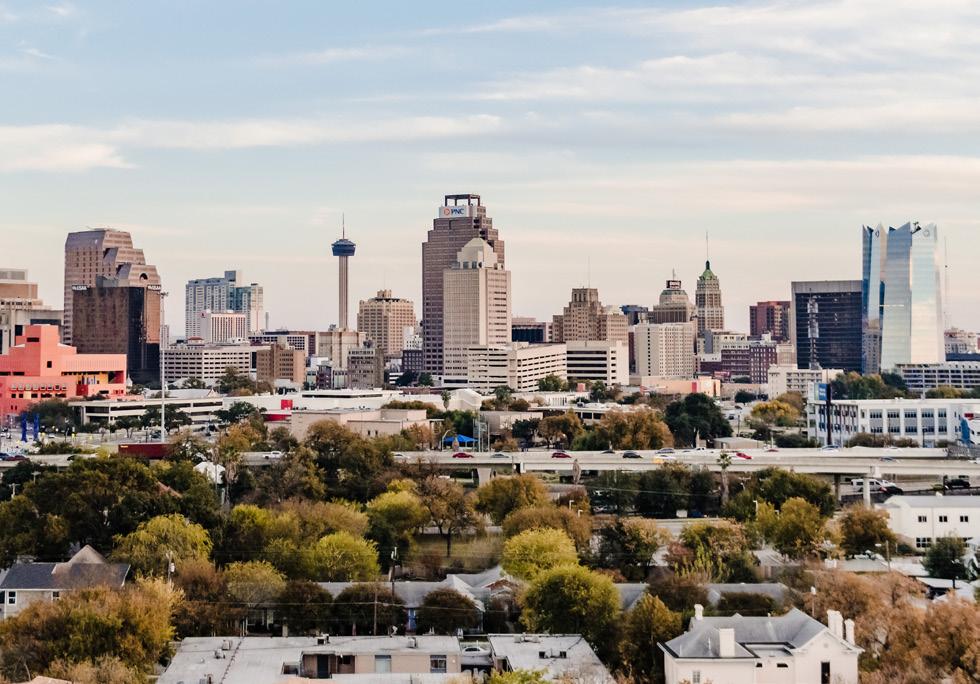
Alongside workforce training is another pillar: access to healthcare. As Cervantes put it simply, “Nothing keeps you out of work more than being sick without care.”
YWCA partners with local hospitals and clinics to bring healthcare directly to their members, by bus or with on-site visits. Services include mammograms, eye exams, diabetes testing and more. When members raised concerns about maternal health, YWCA responded by launching doula training to help women reclaim their agency in pregnancy and childbirth.
And it all starts early. YWCA’s childcare center is open to families citywide. The Texas Rising Star 4-Star Accredited program offers year-round, high-quality early childhood education that is backed by research, developmental assessments and daily meals, all at minimal cost to families in need.
Still, Cervantes and YWCA aren’t finished. With childcare center construction nearing completion, the next phase is already underway: building small casitas where women can start building real estate equity.
“When a woman finishes our program, she’ll have the opportunity to own her home,” Cervantes said. “To build equity, create a financial portfolio, and then sell that home back to us when she’s ready for her next step. That’s real change.”
Because poverty isn’t just about money. It is about the thousands of small hurdles that make it harder to heal, harder to grow, harder to dream. Cervantes and YWCA are working to remove those hurdles, one family at a time. Their goal to create space for healing and empowerment provides the kind of hope that lasts for generations.
“
This program is designed for women that are experiencing instability. It is meant for women who are trying to pursue a career or complete their education and need a solid foundation.”
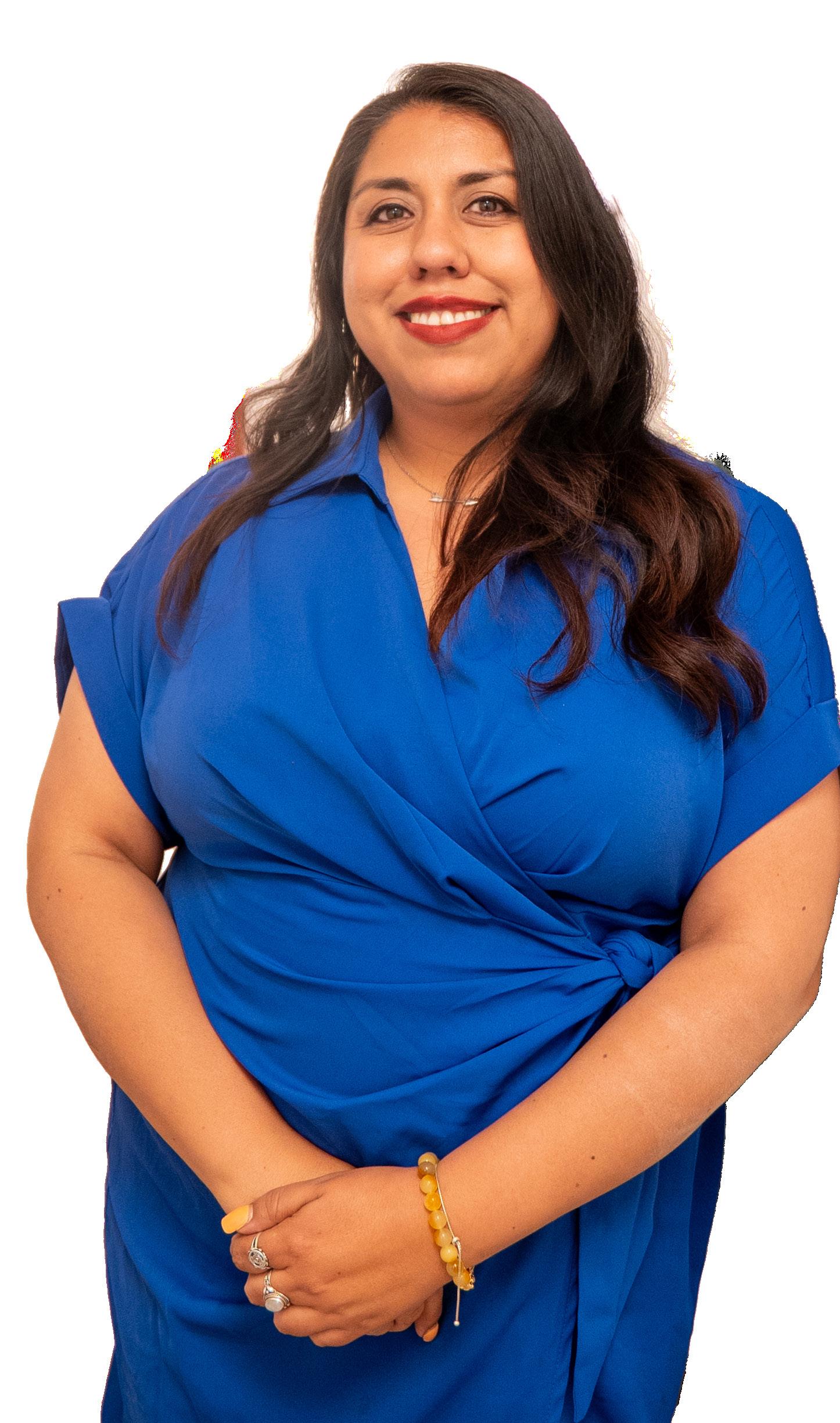
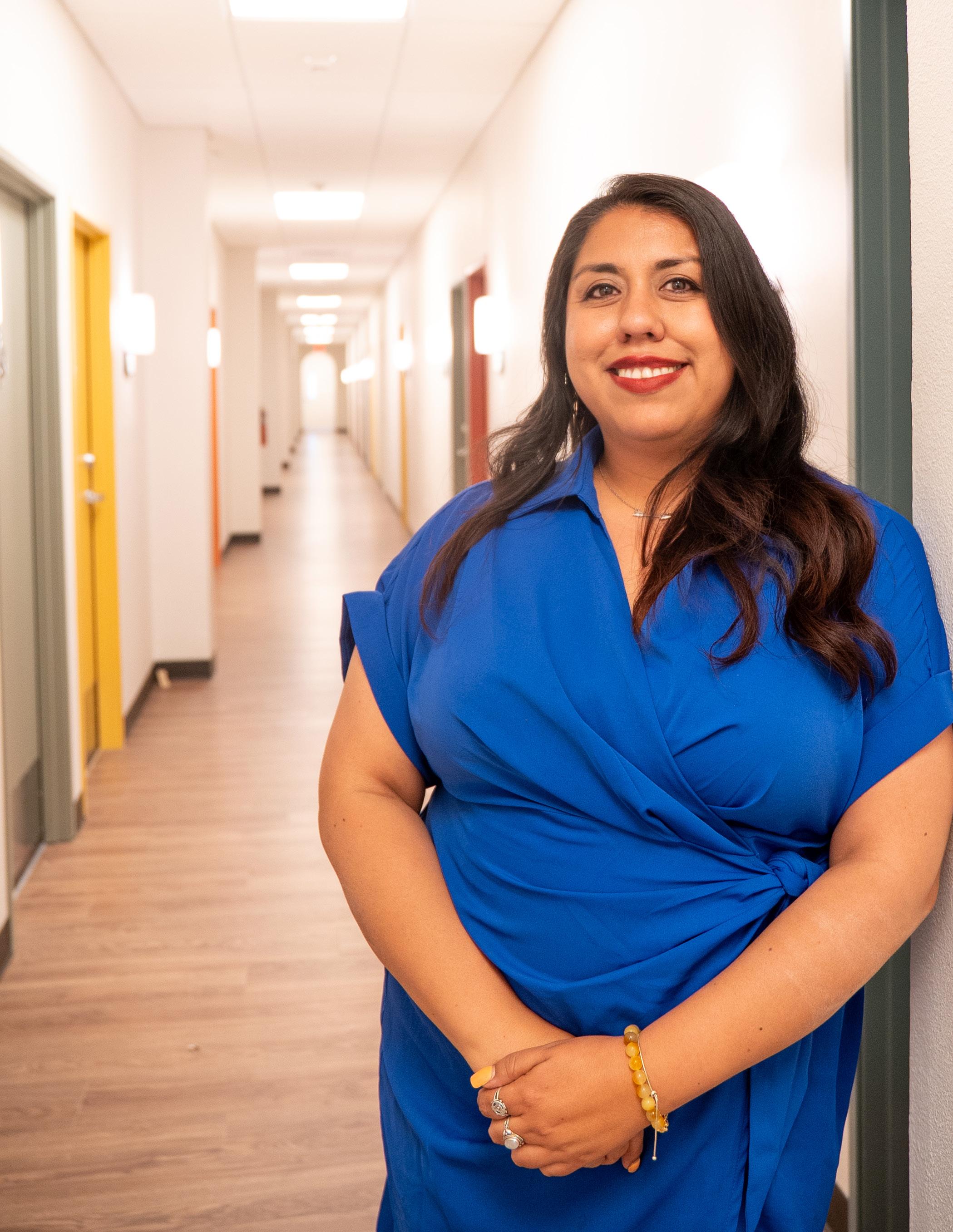
“ Restorative justice is crucial to a college campus and communities as a whole.”
HCAP infuses restorative practices into the classroom and community
At the heart of UT San Antonio College for Health, Community and Policy (HCAP) is a mission to focus on connection. Robert Rico , a seasoned practitioner of restorative practices, has brought his expertise to the university, helping to weave these principles and values into the very fabric of HCAP’s classrooms and community initiatives.
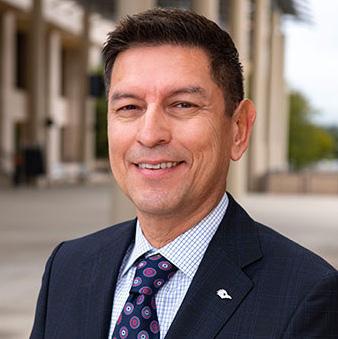
Restorative practices are a relational, nonpunitive approach to addressing student misconduct, as well as faculty or staff conflicts, that help support healthy relationships and enhance the community. They are used to prevent or respond to harm in a community with an emphasis on healing, social support and active accountability. The restorative process humanizes issues and helps build connections.
“Restorative practices are all about repairing harm and building relationships,” said Rhonda BeLue, associate dean for community engagement and partnerships. “Given HCAP's commitment to working with communities to build a better San Antonio and beyond, restorative practices are essential to this mission. As an expert restorative practices scholar and practitioner, Dr. Rico has created opportunities for HCAP students, faculty, staff and
community partners to learn about the benefits of restorative practices and how to incorporate them into our daily work.”
From community conversations to classroom circles, the impact is already palpable. Students are finding brave spaces to reflect on their experiences through community restorative conversations, both virtual and in-person, where topics range from global events to personal struggles. Initiatives like “La Plática” offer a blend of wellness check-ins and honest dialogue, providing students with the opportunity to share the highs and lows of their semester in a supportive and respectful environment. A faculty member whose students in a class were having conflicts commented about the effect of the circle: "Overall, it's the most successful semester I've had to date. So many positive remarks in my evaluations regarding the classroom climate.” A student participant said, “I am sincerely grateful that both of you came together to model to us, future teachers, how important relationships are and that we have a voice.”
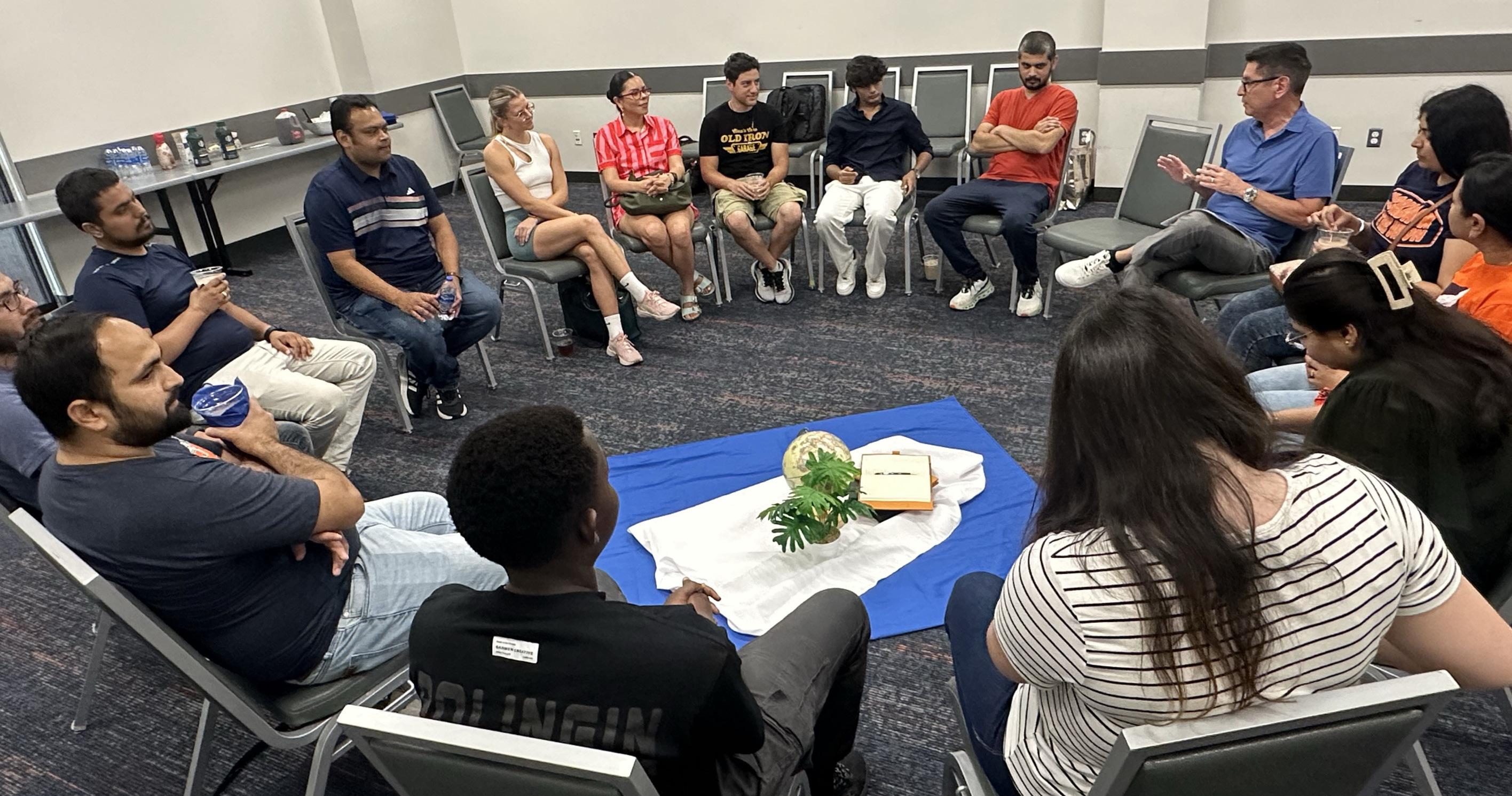
“Restorative justice is crucial to a college campus and communities as a whole,” said Becky Pettersson ’23, one of Rico’s former practicum graduate students. “The work Dr. Rico has been pioneering at UT San Antonio gives a new human-centered perspective on how to work with conflict, crime, tragedy and community engagement on campus.”
Beyond reflection, restorative practices are being used to build bridges. Community-building circles have become a powerful tool for fostering relationships and deepening the sense of belonging within HCAP. When misunderstandings arise, Restorative Circles help participants work together toward resolution, promoting healing over blame.
HCAP’s restorative efforts have extended well beyond the classroom. Presentations and collaborations have reached a broad audience, including UT San Antonio's Title IX Office, Student Conduct and Community Standards, People Excellence, Housing and Residence Life and participants at conferences such as the Whole Child Community Conference hosted by Communities in Schools.
Rico is collaborating with UT San Antonio's Office for Global Initiatives by facilitating circles for international students to reflect on current events and check in on their well-being. The gathering is called ‘What’s Up Wednesday’ and has been well received. In the words of a doctoral student participant: "I think the group appreciated our activity more than I could have imagined. I felt that there was an excellent environment where we could speak about how we were feeling at the time." Another graduate student circle
participant stated: "It was overall a very good experience—genuinely healing, supportive and thought-provoking.”
In addition to internal engagement, HCAP is working to strengthen ties with the broader San Antonio community, which includes law enforcement and criminal justice agencies, as well as non-profit organizations, to demonstrate how restorative values can influence and benefit both policy and practice throughout the region.
Rico has been with UT San Antonio since 2006, teaching for the Department of Criminology and Criminal Justice after spending 20 years in law enforcement, where he founded a Restorative Justice program for youth offenders. He is also an HCAP alumnus with a Master of Public Administration.
Whether it’s cultivating dialogue, resolving conflict or simply creating space for connection, HCAP’s integration of restorative practices is reshaping how we care for one another and offering a model for what a compassionate campus can look like.
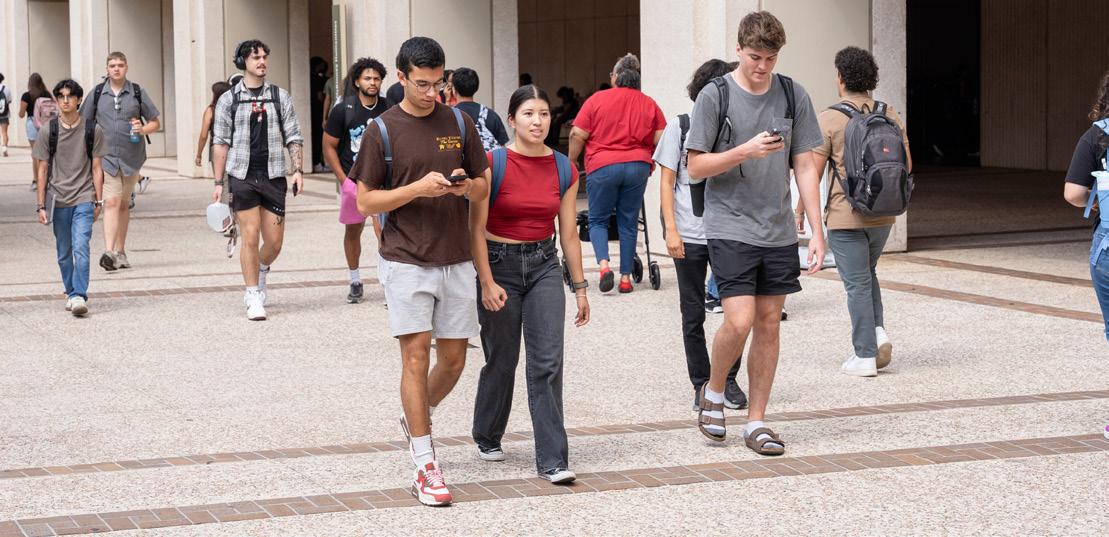
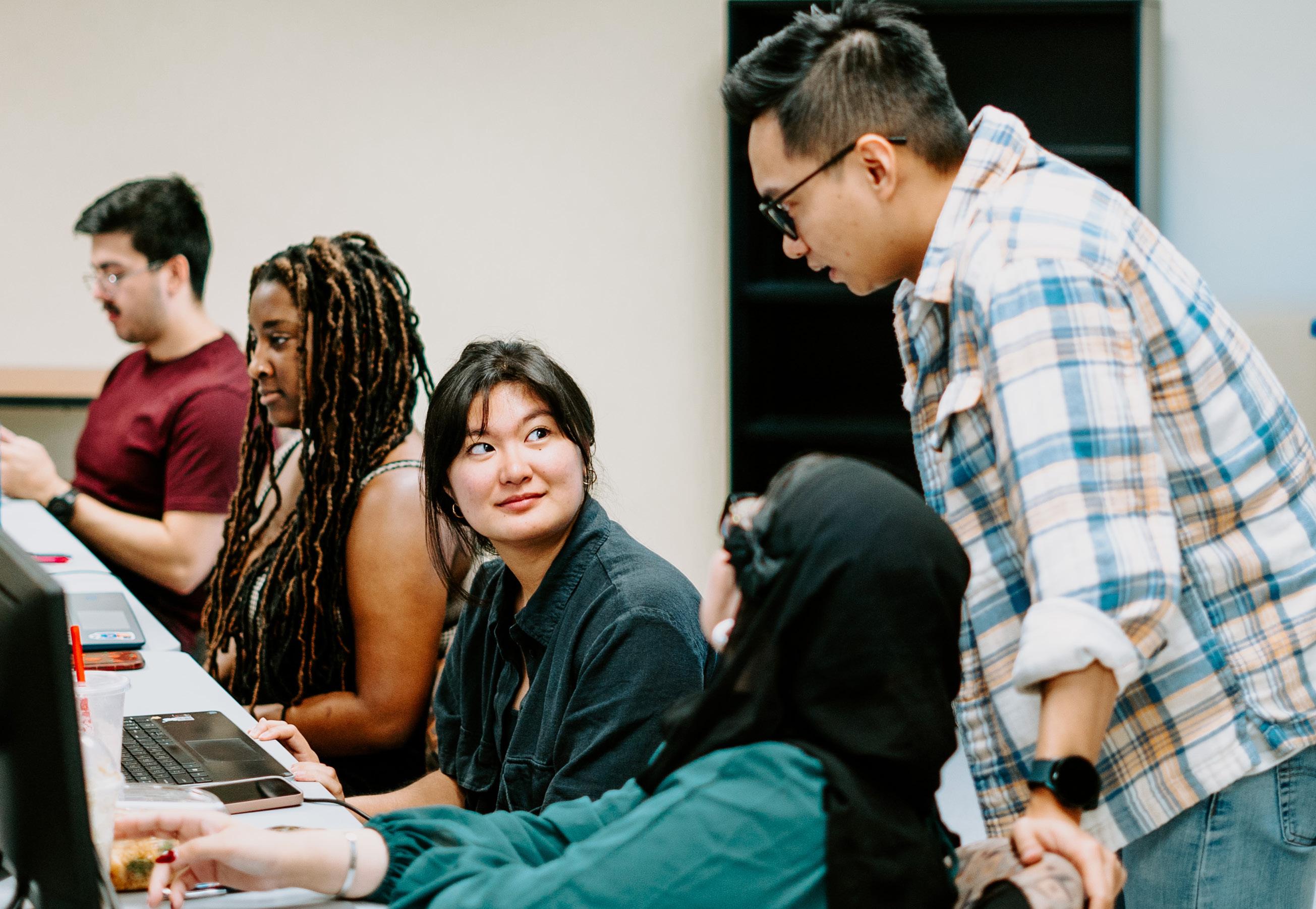
Bridges to Bold Futures
Each summer, a quiet transformation takes place on the UT San Antonio campus. Classrooms once filled with lectures shift into training grounds for the next generation of researchers: students who may be the first in their families to attend college, now gaining the tools to envision careers they hadn’t previously imagined.
The Bridges to Bold Futures Program, developed by Kara Joyner, professor of sociology and demography, is designed to do exactly that: recruit and prepare first-generation undergraduates to complete their degrees and pursue meaningful, research-based careers.
“I really enjoyed conceptualizing the program, identifying sources of funding for it, and finally, co-directing the program for the inaugural cohort of Bridge Scholars in 2024,” said Joyner. “I was impressed that so many of my colleagues volunteered to share their research and career stories with these students.”
In an intensive, four-week in-residence experience, students dive into the fundamentals of the research process, guided by faculty and graduate mentors from the College for Health, Community and Policy. Students participate in workshops, trainings and seminars that focus on quantitative research, professional development and academic planning, all while building confidence and community.
“The Bridges to Bold Futures Program represents everything that UT San Antonio values,” said Terrence Hill, director of the program and professor of sociology and demography. “The program
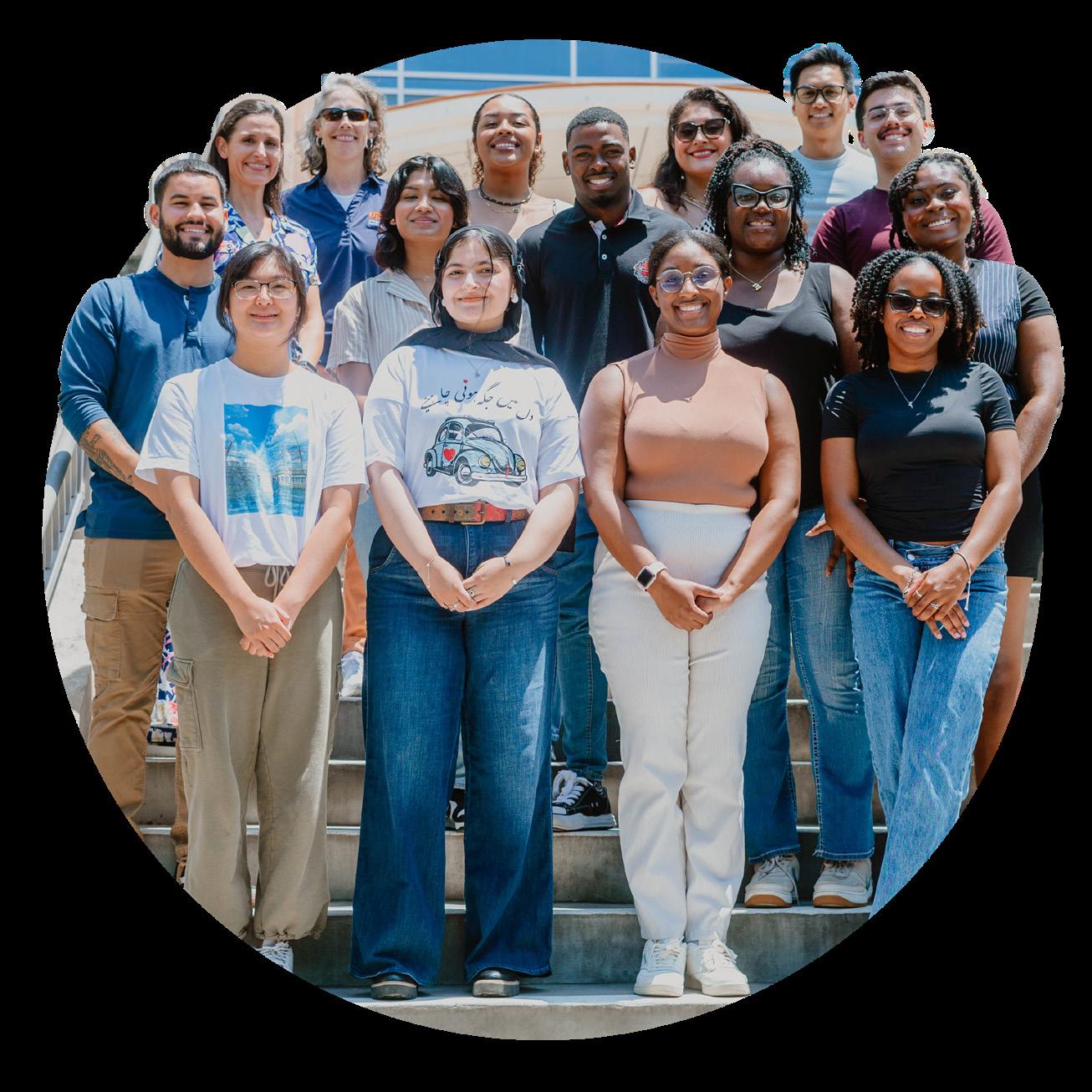
around research careers for students who may not have considered such a path."
Thanks to generous funding from The Michael and Alice Kuhn Foundation, students who are accepted into the program receive on-campus accommodations, meals and a $3,000 scholarship in support of full-time participation. They spend each weekday engaged in both structured learning and independent assignments, developing the habits and skills that will serve them long after the program ends.
The program is open to current or incoming transfer students at UT San Antonio, with priority given to first-generation students who have completed fewer than two years of college and are interested in public health or data analytics. These priorities reflect the program’s mission to reach students at a formative moment in their educational journey.
And for many, that moment can be pivotal.
“As a first-generation student, I wasn’t sure if grad school was for me,” said Adaeze Ekemezie, a kinesiology major who completed the program. “Being part of the Bridges to Bold Futures program helped me see what’s possible and gave me the support and resources to feel more confident about pursuing a master’s degree.”
In classrooms, labs and community spaces, students are gaining research experience and discovering their next steps.
With every cohort, the Bridges to Bold Futures Program builds a foundation for leadership, scholarship and long-term impact. provides a unique opportunity for first-generation students to receive intensive training in quantitative research from HCAP faculty and graduate students. It develops future leaders who will drive innovation in the world by fostering applied critical thinking and intellectual growth."
Beyond technical training, the program emphasizes pathways to career and graduate education. Faculty from all HCAP disciplines participate, offering students a cross-disciplinary view of the professional life course.
“I was honored to take part in the Bridge Program and share my research journey with such motivated students from a range of disciplines,” said Kellie Lynch, associate professor of criminology and criminal justice.
“My early exposure to research in my undergraduate degree critically shaped my trajectory as an academic. It is fantastic that UTSA is offering exposure and mentorship
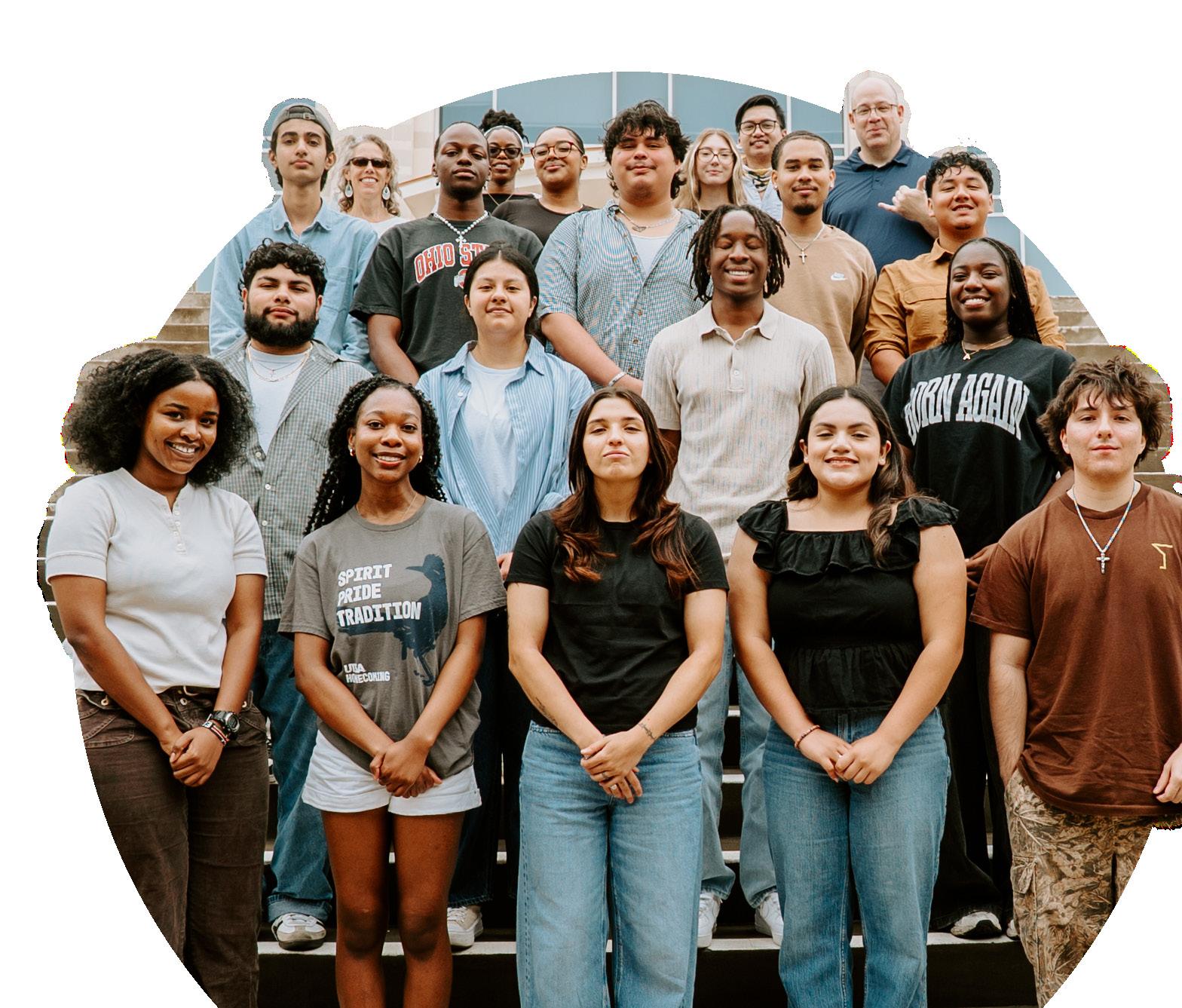

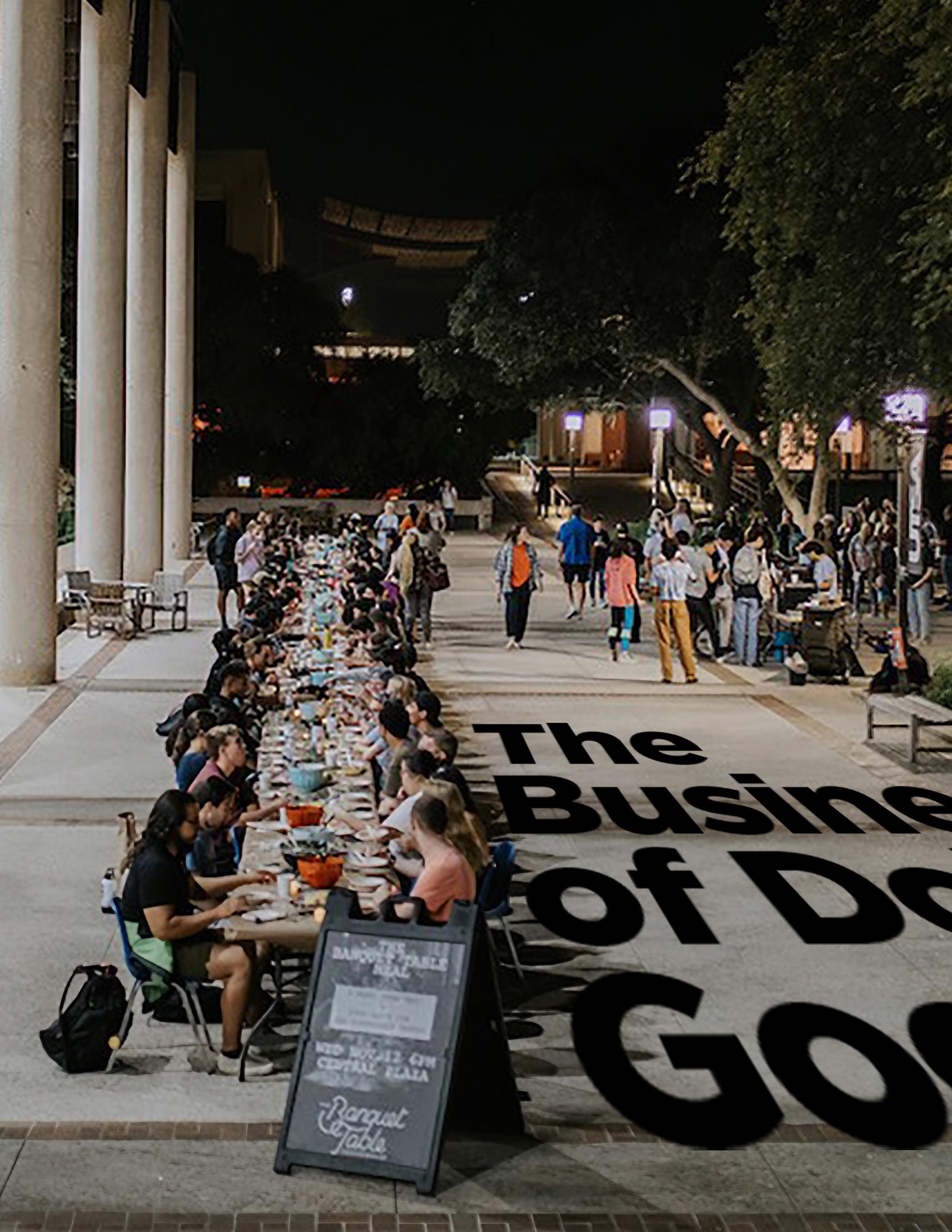
Carmel Gabriel ’11, Founder, The Banquet Table
Marcus Gabriel ’13, Assistant Headmaster, Great Hearts Academy

For Carmel and Marcus Gabriel, building community isn’t just a calling, but a way of life. As UT San Antonio alumni, educators and passionate advocates for social justice, the couple has dedicated their lives to creating spaces where connection and compassion take center stage.
“We had a dream a long time ago about helping connect college students to the nonprofits in town,” Carmel said. “Marcus and I are both UTSA grads, and I’ve also worked with nonprofits for 15 years. We just have a passion for college kids who really care about social justice.”
That dream took shape in 2018 with the founding of The Banquet Table, a grassroots initiative focused on honoring local nonprofits and bringing diverse groups of people together around a common mission. Every Thursday from
10 a.m. to 1 p.m., students can find the Banquet Table in the Sombrilla, where volunteers offer free coffee, highlight a local nonprofit and share opportunities for students to get involved.
“At the end of the month, we host a gathering centered around that mission on campus,” Carmel said. “It’s about inviting people into something bigger than themselves.”
More than just a student engagement project, The Banquet Table is a belief in the value and dignity of every individual.
“We founded The Banquet Table because we wanted to create a place where we could draw all different types of people together,” Marcus said. “And then show that the inherent value and worth within individuals was worth recognizing, honoring and pursuing.”
That focus on service and togetherness threads through both their lives. While Carmel leads the initiative day to day, Marcus works full time as the Assistant Headmaster at Great Hearts Invictus Upper School, a K-12 academy rooted in the classical, liberal arts tradition.
“To some degree, what I’m doing here is right in line with what Carmel is doing at The Banquet Table,” he said. “I want to elevate students so they can be successful and teach them how to engage with people.”
For the Gabriels, it all comes back to a shared belief in living in service to others.

“The bottom line is, it's others oriented, and that's what nonprofits are,” Carmel said.
“I love what I do. I love what Carmel does. She loves what she does,” Marcus added. “We believe that the work we do in nonprofits is more valuable than chasing the American dream.”
Their connection to UT San Antonio remains strong and deeply meaningful. It’s where their passion for service was shaped, and where they now give back in tangible ways.
“What I love about UTSA is that there's not a dominant culture,” Carmel said. “It's been fun to be a part of feeling like we're helping foster on-campus community.”
For Marcus, the most rewarding part of his job is the one-onone mentorship.
“I get to sit down with kids who are wrestling through some sort of peer conflict, while getting to speak truth and value into who they are,” he said. “I love watching kids learn that it's better to help somebody up versus putting someone down.”
And for Carmel, it’s the act of gathering – of making space for dialogue, even across differences – that fuels her.
“I most enjoy bringing together really diverse people around tables,” she said. “The whole idea of looking past whatever political affiliation or identity, and caring for one another.”
“At the core of who we are as human beings is not policies,” she added. “It's togetherness, and having that connection.”
Together, Carmel and Marcus Gabriel are living out a vision where community isn’t just something you talk about, but something you build, one table, one student and one conversation at a time.
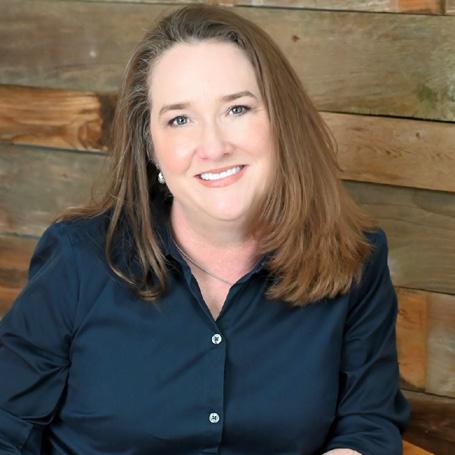
Shannon White ’95, CEO and Chief Clinical Director of Guardian House

When Shannon White first walked through the doors of Guardian House, she knew she had found something special.
“I was really excited about the work and the mission,” she said. “Sometimes it’s hard to measure impact with nonprofits, but here, we can see how people’s lives are transformed.”
As the CEO and Chief Clinical Director of Guardian House, White combines a wealth of clinical expertise with a deep-rooted passion for service. A licensed professional counselor with a Bachelor of Science in Psychology from UT San Antonio, she has spent the past 15 years guiding families through some of their most vulnerable moments.
Founded in 1997, Guardian House supports children and parents navigating high-conflict divorce situations, helping them redefine and restructure their families during what is often a turbulent time. The organization offers a holistic, flexible approach, working with custodial and non-custodial parents, additional caregivers and most importantly, children.
White’s role in the organization is as multifaceted as the families it serves. She divides her time between direct clinical work and executive leadership, overseeing budgeting, staffing and daily operations. One of the most rewarding aspects of her position, she says, is mentoring the next generation of counselors – including many from UT San Antonio.
“It’s not just therapeutic in the counseling room,” she explained. “But how, as a supervisor, as a CEO, as a mentor, how am I practicing my clinical skills in different ways? That leaves a lot of creativity for me. I don't do the same thing every day, and it taps into a lot of different things that I like and creative kinds of ways.”
Her message to current UT San Antonio students is clear: don’t wait to make a difference.
“I would love to challenge students to think about serving on a board,” she said. “Some students may think they are too young, or don't know enough people, or have enough money. Students at UT San Antonio can volunteer, maybe put together a mini fundraiser. They can still really help the community.”
White knows firsthand the demands of nonprofit work, but she also knows its transformative power.
“Nonprofit work is hard, but for Guardian House, we break multigenerational cycles of abuse,” she said. “Most families that come to us have an atmosphere of domestic violence. Oftentimes, we see mental health issues and substance abuse issues all piled on top. It again goes back to why it's so important to have boards. That's part of who, as a CEO, I lean on.”
Her passion for community service and social impact was ignited during her years at UT San Antonio, where she found both academic and personal support.
“While I was at UTSA I came to understand that nonprofit is where my heart was,” she said. “Plus, I was seen as not only a student, but as a person. I would go to office hours and talk to my professors, not only just about classes, but about life and careers and other larger concepts.”
Shannon White’s story is one of compassion, leadership and a lifelong commitment to building stronger, healthier families. And for those looking to get involved, Guardian House is always looking for new advocates.
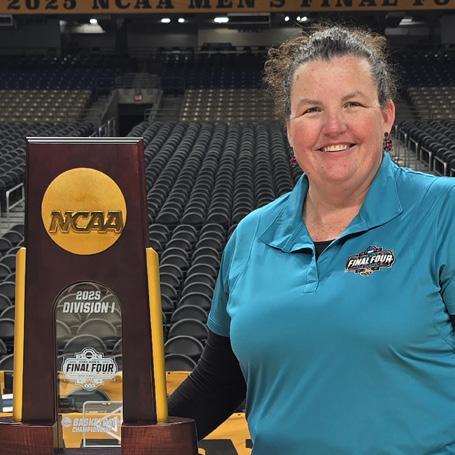
Dierdre Murphy ’07, Chief of Staff at San Antonio Sports

When Dierdre Murphy first arrived in San Antonio, she didn’t know a soul. But she did know one thing: she loved sports. That passion would spark a decades-long relationship with San Antonio Sports, one that has come full circle in the most unexpected way.
“When I originally moved to San Antonio, I was looking for ways to get involved in the community,” she recalled. “I have been in love with sports my whole life, and San Antonio Sports was looking for volunteers for the 1996 NBA All-Star game. I started there and never stopped.”
That first volunteer role turned into more than twenty years of service before Murphy officially joined the nonprofit as Chief of Staff in 2023. Now, she’s part of the team behind some of the city’s most impactful sporting events, from the NCAA Final Four to the San Antonio Marathon.
From helping plan major events to making sure the CEO has what she needs each day, Murphy is deeply involved in the pulse of the organization.
“It is exciting being on the staff end and having my finger on the pulse of how these events come to be,” she said.
A dedicated community leader, Murphy also serves on several nonprofit boards, including the American Diabetes Association and the Harp & Shamrock Society. Her commitment to service and leadership was shaped during her time at UT San Antonio, where she earned a Master of Public Administration.
“The things I was exposed to during the MPA program at UTSA absolutely helped me in my career,” she said. “Especially things like budgeting and program evaluation.”
She credits two nonprofit administration classes in particular with giving her the practical foundation to understand fundraising and grant writing – skills she uses to this day.
In a full-circle moment that surprised even her, Murphy’s current office is in the Alamodome: the very building she once studied in detail as a UT San Antonio student.
“It is exciting being on the staff end and having my finger on the pulse of how these events come to be.”
Since 1984, San Antonio Sports has brought in over $1 billion to the local economy through events, but the organization’s mission extends well beyond the finish line. At its heart, San Antonio Sports is about using the power of sport to inspire active, healthy lifestyles for children and families.
Murphy’s role as Chief of Staff is dynamic and wide-ranging. No two days are the same, and she thrives on the pace and variety.
“I joke sometimes that my position is the block and tackle,” she said with a smile. “I have to be that liaison to ensure that the organization is moving along.”
“I had to go into detail about taxes, structure, impact on the city and more,” she said. “And now my office is housed in that very building, and I’m working for an organization that needs this building to be updated.”
For Murphy, the most fulfilling part of her job isn’t the high-profile events or the impressive venues. It’s the people.
“The best part of my job is getting to know my fellow employees and my coworkers,” she said. “They're a really great group of people to be a part of.”
To students interested in getting involved, she has simple advice: just start.
“The best way to start getting involved is to volunteer at an event,” she said. “There are other ways to help the organization, like making donations or attending our events. We’ve had UTSA interns for years, so we’re always welcoming students to come on board and learn how a nonprofit operates.”
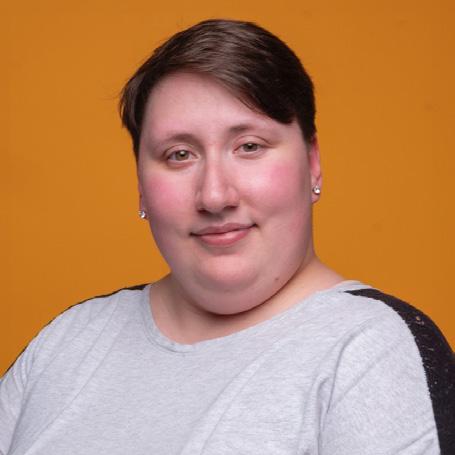
Jamilyn Keeton ‘18, Chief Operating Officer, TEAMability
As a UT San Antonio undergraduate, Jamilyn Keeton never imagined that her path through public administration would one day lead her to the intersection of nonprofit leadership and clinical care. But a combination of policy training, real-world experience and a deep-rooted desire to help others laid the groundwork for a meaningful career.
During her time at UT San Antonio, Keeton participated in the prestigious Archer Fellowship Program, a competitive opportunity that brings students from across the UT System to Washington, D.C., for internships and coursework focused on public policy, history and advocacy.
That experience helped sharpen her passion for community engagement, which led her to MOVE Texas shortly after graduation. Founded by fellow Roadrunner Drew Galloway, MOVE Texas is a nonprofit focused on civic engagement and youth empowerment.
physical and speech therapy, along with assistive technology and support for schools and caregivers.
“People who end up here are here because they’ve gone through significant challenges and sometimes tragedy,” Keeton said. “But even in the face of that, you go to TEAMability and it's a bright, wonderful, happy space. We are here to help people actually make progress.”
Leading a clinic that is also a nonprofit comes with its own set of unique challenges, but Keeton and her team embrace those with determination and grace.
“TEAMability is not just simply a nonprofit, but also a clinic,” she explained. “That’s two different sets of standards and laws. Fundraising is different, operating is different.”
Fortunately, her education at UT San Antonio gave her early insight into the mechanics of nonprofit operations.
“ TEAMability is not just simply a nonprofit, but also a
clinic.
“One of the most beneficial classes I took at UT San Antonio was fundraising for nonprofits,” she said. “It made me realize that there really isn't much of a difference between small businesses and nonprofits. Nonprofit does not mean you shouldn't carry revenue year to year, it just means you don't sell a product to make a profit.”
That’s two different sets of standards and laws. Fundraising is different, operating is different.”
“We had to wear a lot of hats at MOVE,” Keeton recalled. “That’s where I started to learn things like payroll and policy writing. So I leaned into that and started earning some certifications.”
Her next step came by chance – but it turned out to be a pivotal moment.
“I found TEAMability by accident,” she said. “I was doing some consulting work and learning a lot about the nonprofits across San Antonio, and that’s how I became aware of it.”
Today, Keeton serves as Chief Operating Officer of TEAMability, a nonprofit and therapy clinic that provides comprehensive services to children and adults with complex disabilities. Located in Morgan’s Multi-Assistance Center (MAC), TEAMability offers occupational,
At the heart of her leadership philosophy is her commitment to supporting the staff who carry out TEAMability’s mission every day.
“The best part of my job is that I get to work with the most amazing people,” she said. “There’s a misconception that human resources isn’t protecting the best interest of the employees, but that’s not the case here. I try really hard to build as much of the policies and processes around the staff. At the end of the day, those are the people doing the work and making the change.”
In a constantly shifting philanthropic landscape, Keeton remains focused on sustainability and service.
“Fundraising is an ever-changing landscape,” she noted. “We are fortunate that the MAC has so many amazing funders that already exist and allow us to continue this work, despite the challenges today’s landscape brings.”
For Keeton, making a difference means leading with dignity, compassion and a clear-eyed view of what it takes to build something lasting.

Angela Kester ‘05, VP of Quality Assurance and Human Resources, Child Advocates San Antonio (CASA)

When Angela Kester first started as a Child Advocates San Antonio (CASA) volunteer, she was looking to put her criminal justice degree to use. What she found was something deeper: a calling.
“I first joined CASA as a volunteer, and I was really drawn by the opportunity to support the mission of helping kids in the foster care system,” Kester said. “I was also excited for a chance to incorporate my degree in criminal justice as a volunteer in a courtroom.”
What began as a volunteer role evolved into a full-time career. Today, more than eight years later, Kester serves as Vice President of Quality Assurance and Human Resources at CASA, a nonprofit that recruits, develops and leads court-appointed volunteer advocates for children who have experienced abuse and neglect.
“No other agency provides this critical service in Bexar County,” Kester said. “We love to match a child in the foster care system with a volunteer advocate, because we know statistically it makes such a big difference in their outcome.”
In her current role, Kester draws on her background in best practices and compliance to support both the organization’s mission and its staff.
“In my day to day, I'm able to take my knowledge about best practices and advocacy and then use it for a lot of auditing to make sure that we're in compliance with our grant funding and best practices,” she said.
Her dedication to advocacy was ignited during her time at UT San Antonio, where she earned a Bachelor of Arts in Criminal Justice.
“My time at UTSA really helped shape my passion for victim advocacy,” Kester said. “I was learning so much about crime theories and deterrence, but what really fascinated me was how we can support victims.”
That interest led her to an internship with the city attorney’s office in the domestic violence prosecution section, where she worked directly with survivors navigating the legal system.
“I worked with female victims, taking them into the courtroom ahead of the testimony to show them where they would sit, role play some of the interactions and help them feel more comfortable with a process that is often traumatizing,” she said. “That internship really ignited my passion for victim advocacy, and I still feel the same today. Whether they are children or women or anyone in our society, they deserve to be advocated for.”
Kester’s work at CASA is deeply rooted in compassion and perseverance. While the organization faces ongoing challenges –navigating bureaucracy, shifting legislation and coordinating with multiple agencies – Kester stays focused on the moments that make it all worthwhile.
“The best part of my job is when I get to go to an adoption or a celebration for a child who's gone through the whole journey of the foster care system and has returned to their family or found another home that will provide love,” she said. “We have a giant bell that we ring when the child is adopted or reunited with a family member.”
That spirit of celebration and healing is reflected in CASA’s commitment to trauma-informed care. Under Kester’s leadership, the organization has become a national leader in this space.
“Our CASA was the first in the nation to become nationally certified in trauma-informed care,” she said. “Our volunteers and staff can deal with a lot of secondary trauma, from reading affidavits or attending funerals.”
Kester is also a firm believer in lifelong growth. She is currently pursuing an MBA to strengthen her leadership even further.
“It’s never too late to keep learning and developing yourself,” she said.
For those interested in making a difference, Kester has a clear message.
“If someone is interested in becoming a CASA volunteer, just know that we need you so much,” she said. “We have roughly 2,000 kids in foster care in Bexar County who still need a CASA volunteer. There’s such a great need.”
Getting involved is as simple as signing up for an information session through the CASA website, where the team guides new volunteers through the training and onboarding process.
At the heart of Kester’s work is a belief that every child deserves a champion, and a reminder that, sometimes, changing a life starts with simply showing up.

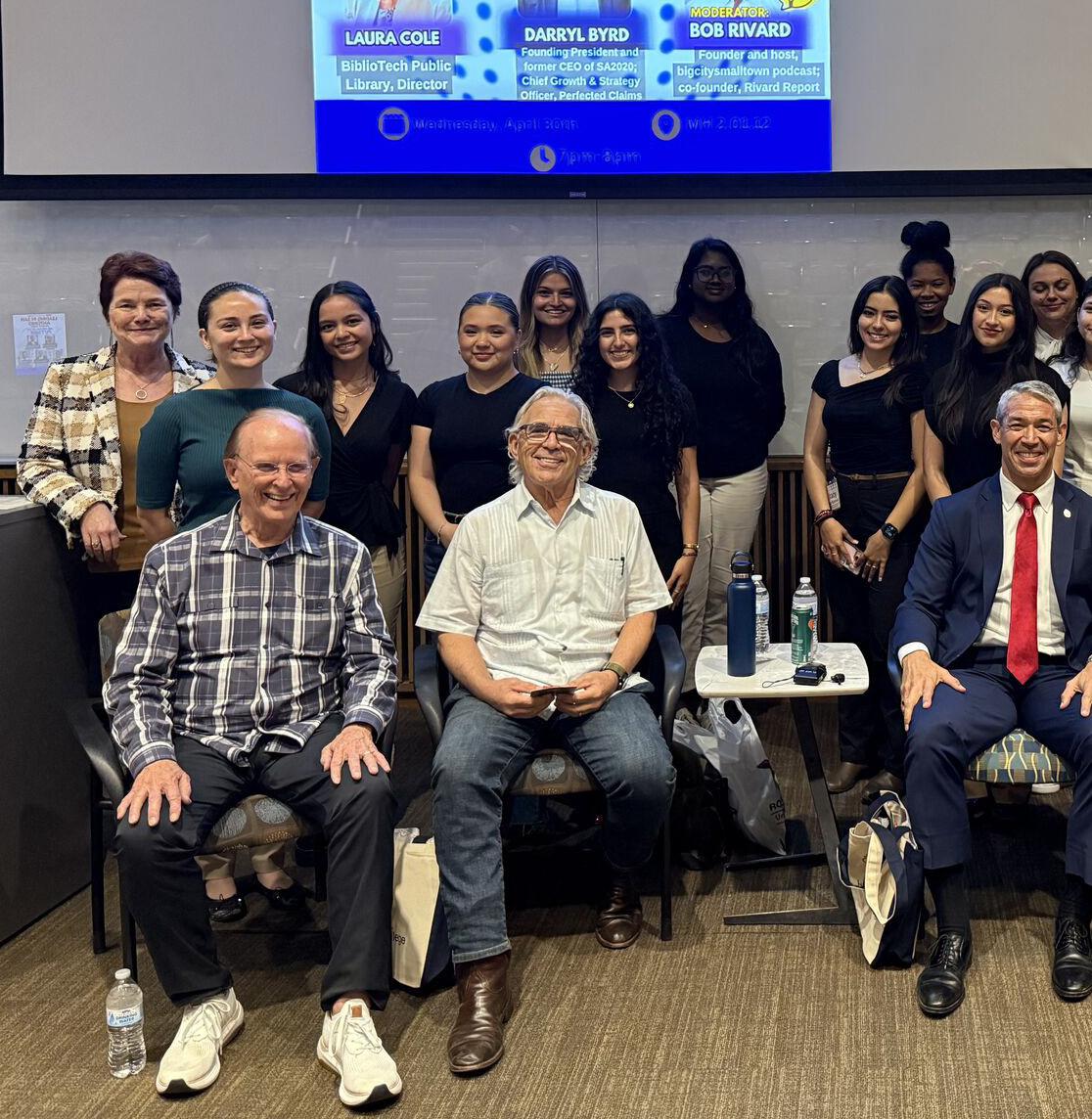
Inside the Classroom
Learning Leadership from San Antonio’s Changemakers
In a city as dynamic as San Antonio, leadership doesn’t come with a single definition. This spring, a group of UT San Antonio Honors College students found that out firsthand from the leaders shaping their community every day.
The course, Leading in Our Community , was co-taught by Lynne Cossman, dean of the College for Health, Community and Policy, and Jill Fleuriet, vice provost for Honors Education. The course is part of a three-course series on learning to lead, in partnership with former Mayor and Bexar County Judge Nelson Wolff.
Designed for honors students across all of UT San Antonio’s academic colleges, the class brought a unique model to leadership education: a rotating panel of community leaders, each one sharing the personal and professional path that led them to where they are today. As students learn from leaders, they develop their own path to significant community leadership in their civic area of choice. “Dr. Cossman and I wanted for our students a class that combined leadership development, concrete planning for civic engagement
and professional exposure to the vast array of talented leaders in our city and county,” Fleuriet said.
Each week, a different area of civic engagement guided the conversation. The series kicked off with a conversation about civic leadership. Moderated by Chair of Public Administration Francine Romero , the panel featured Judge Nelson Wolff , City Manager Erik Walsh, and District 1 Councilmember Sukh Kaur, Ed.D. It was a powerful opening, setting the tone for the weeks to come.
From there, the students explored how leadership shows up in unexpected places, like parks and public spaces. Guests from the San Antonio River Authority, Alamo Trust and Morgan’s Wonderland joined moderator John Phillip Santos to discuss the intersection of public engagement, urban planning and accessibility.
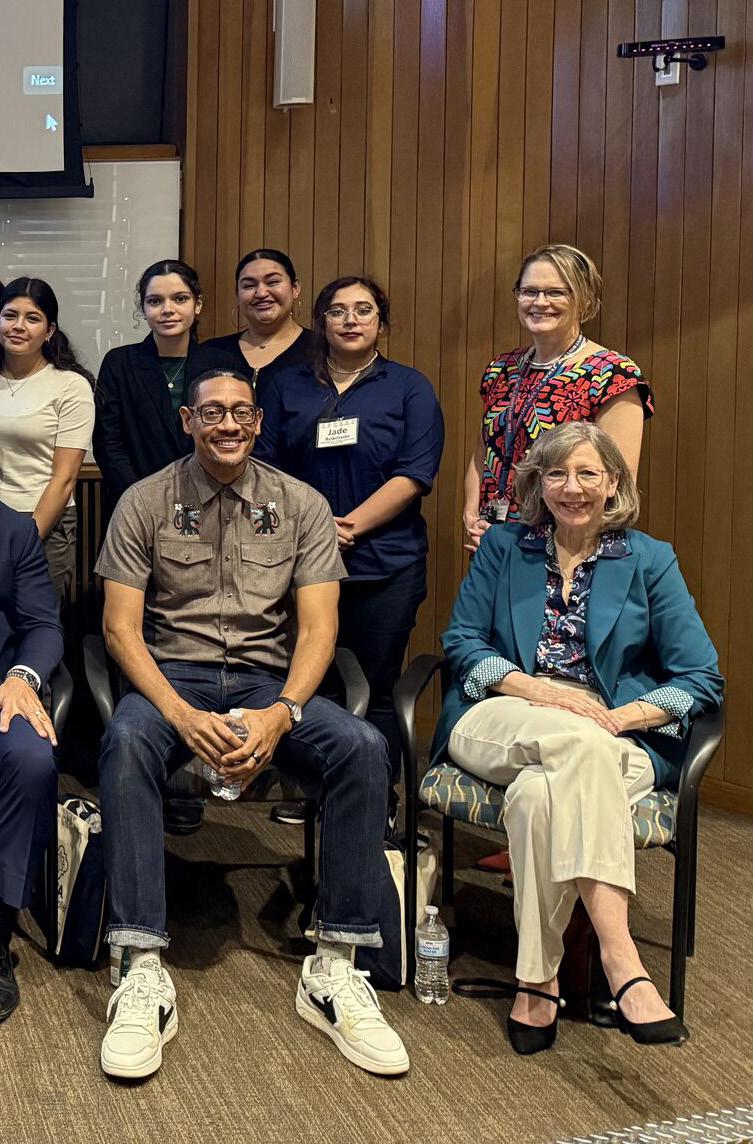
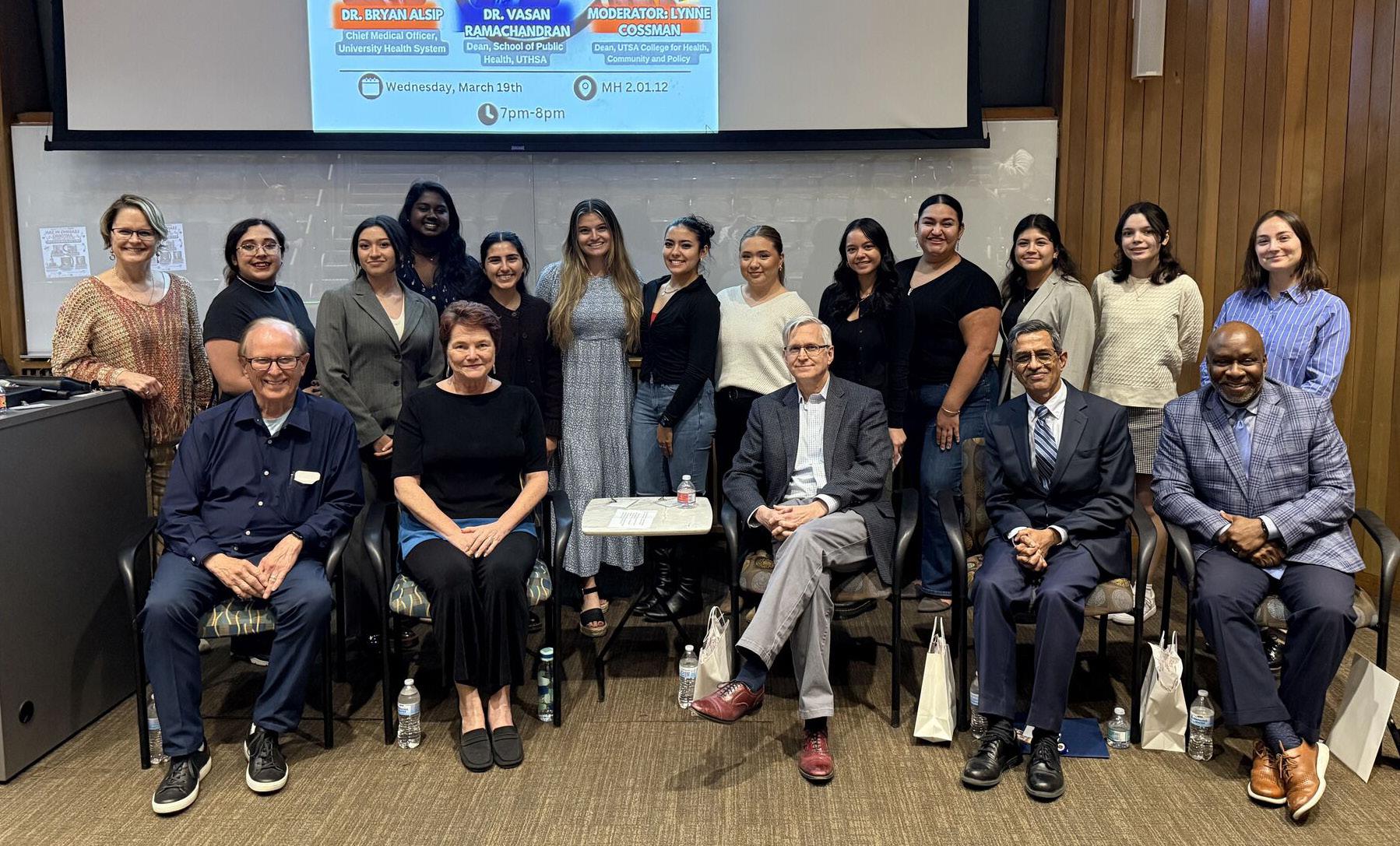
Week three shifted into the world of the arts. “Leading in the arts means being both creative and strategic,” Cossman said. Students heard from leaders at the Tobin Center, Carver Community Cultural Center and San Pedro Playhouse, alongside Nelson Wolff, whose support of the arts shaped decades of cultural investment in San Antonio.
Later panels focused on public health, justice, education and the future of the city itself. Public health leaders from University Health, the Metropolitan Health District and the new UT School of Public Health at San Antonio offered a candid look at the challenges of community care. In the justice panel, a mix of voices – from judges and sheriffs to academic researchers –sparked important conversations about equity and public safety. The Dean of the Carlos Alvarez College of Business, Jonathon Halbesleben, moderated a lively panel on industry and technology.
One of the most timely discussions came during the education-focused panel.
“ Dr. Cossman and I wanted for our students a class that combined leadership development, concrete planning for civic engagement and professional exposure to the vast array of talented leaders in our city and county.”
Moderated by UT San Antonio Professor and Dean of the College of Education and Human Development, Mario Torres , the speakers tackled the evolving landscape of K–12 education, sharing not just data but also stories of resilience and innovation. Questions for this panel mostly addressed the issue of charter schools and vouchers.
The final panel, moderated by journalist and podcast host Robert Rivard, looked ahead. Mayor Ron Nirenberg , Nelson Wolff and other civic leaders discussed the trajectory of San Antonio in a changing political and economic climate. The discussion was lively, complex and ultimately optimistic. It was a fitting end to a course rooted in the belief that leadership is local and always evolving.
For the students in the class, the takeaway was clear: leadership is not a title. It’s a practice that can take many forms, and one that often begins by listening to those who’ve walked the path before.
In Memoriam
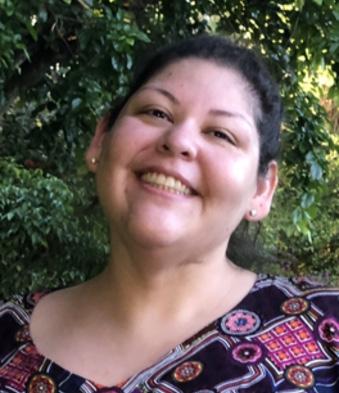
Jessica Ann Liberty
Jessica served as the administrative assistant for Sociology and Demography since August of 2021. She passed away on October 19, 2024 at the age of 39.
Born on April 28, 1985, in San Antonio, Texas, Jessica lived a life marked by dedication to her family, education and the betterment of others. Her passing in her hometown of San Antonio, due to natural causes following multiple medical issues, leaves a profound void in the hearts of those who knew her.
Jessica is survived by a loving family and was a proud alumna of Tarleton State University, where she earned a Bachelor of Science in Agricultural Services and Development. Jessica was very passionate about TSU and made many lifelong friends and sisters in her sorority, Phi Mu. Her passion for
education led her to obtain a Master of Education in Student Services from the University of the Incarnate Word. Jessica's career in higher education was marked by various roles where she excelled as a college recruiter, regional recruiter, student activity coordinator and outreach admissions counselor. In all her roles, what she enjoyed the most was working with families and students, helping them find the right university or developing their skills. Her passion resulted in many of her student workers continuing in higher education careers.
Family was the cornerstone of Jessica's life. She relished every moment spent with her son, Eric Jr., and embraced every opportunity to create lasting memories with her extended family. She volunteered as the team mom for her son's activities, always ensuring that everyone felt included and had fun.
Despite facing significant health challenges over the last four years, Jessica's strength and determination never wavered. She fought through her illness with grace and resilience, always putting her son and family first.
Described by those who knew her as thoughtful, selfless and friendly, Jessica's legacy is one of unwavering love, generous spirit and a commitment to making a positive impact on the world. Her absence will be deeply felt, but the memories she created will forever be cherished by her family, friends and all who were fortunate enough to cross paths with her.

Katheryn Eads, PhD
Dr. Katheryn Eads, senior lecturer in the Department of Psychology, passed away during the Hill Country flooding.
Dr. Eads brought compassion, insight and dedication to everything she did. Her loss has been felt across the college community, and the UT San Antonio community as a whole.
"Dr. Katheryn Eads lived a fulfilling life, cut far too short. She was an incredible wife, daughter, mother, grandmother and person who spent her life helping kids, from those in the foster care system early in her career to those in school, both in early education as a psychologist and in college as a professor," daughter Victoria said in a written statement to People Magazine on behalf of the family.
“Dr. Eads was an extraordinary educator whose devotion to her students and to the craft of teaching embodied the very best of our academic community," Heather Shipley, provost and executive vice president for academic affairs at UT San Antonio.
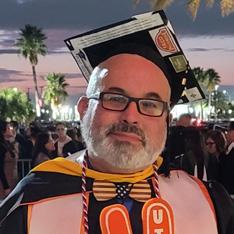
1999
Carlos J. Trevino, Jr. (Kinesiology) earned a MS in kinesiology with a concentration in sports management from UT Rio Grande in December 2024.
Tanya Anchara (Sociology) is starting a doctoral program in educational leadership at Baylor University.
2001
John Paul Delgado (Criminal Justice) received a supervisory promotion within the US Department of Homeland Security in Washington, D.C.
2003
Dr. Leroy Alloway, AICP, ENV-SP (Master of Public Administration) joined VIA Metropolitan Transit in February 2025 as Chief of Staff. He was most recently Vice President of Government Affairs for CapMetro in Austin, Texas, and returns to San Antonio and to VIA after 2.5 years in Austin.
2008
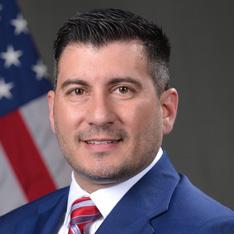
2018

David Stone (Criminal Justice) was awarded the 67th Cyberspace Wing Staff Cat III Civilian of the Year.
Patrice McElfresh (Master of Public Administration) had an 18-year anniversary working at the UTSA Small Business Development Center inside the Valdez Institute for Economic Development. She assists small business owners with financial projections, business planning and marketing. She is also part of this year's SURE program, which provides students an
opportunity to mentor small business owners all in a classroom setting. They have an experienced instructor and a business professional guiding them.
Patrice also has two sons attending UTSA. Pierce Maki is a nursing student hoping to transfer to UT Health. Shawn Maki is a politics student currently interning at the State Capitol. He is set to graduate this May.
2019
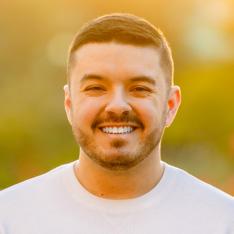
Gabriel Alvarez (Criminal Justice, Psychology) earned an M.S. in criminology and criminal justice and a Master of Public Administration from Arizona State University after graduating from UTSA. He is currently in his third year of a PhD program in criminology, law and society at UC Irvine, where he is also a concurrent J.D. student and a lecturer. Along the way, he completed two additional master’s degrees: an M.A. in demographic and social analysis (demography) and an M.A. in social ecology with a concentration in psychology and law.
“I am incredibly grateful to HCAP for laying the foundation for my academic success,” Alvarez says. “Looking ahead, as I prepare to enter the academic job market, I truly hope there may be an opportunity to return home and contribute as a faculty member.”
2011
Taylor Treviño (Sociology) has recently completed her Master of Business Administration at Texas A&M University – San Antonio. This accomplishment has been a significant milestone for her, allowing her to transition into a new and challenging role as a Graduate Advisor and Admission Coordinator for the College of Business at Texas A&M University-San Antonio.
2023
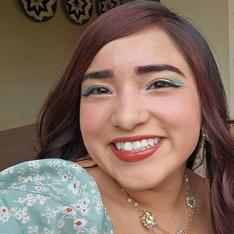
Deniff Lara (Sociology, Public Administration) has been accepted into the Latina Leadership Institute program in San Antonio.
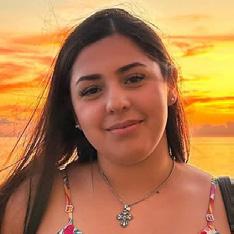
Jackelyn Rodriguez (Criminal Justice and Psychology) went on her first cruise to Cozumel (excursion: swimming with dolphins & snorkeling) and Costa Maya (excursion: private beach club with massages). Now, she is pursuing a master's degree at UT San Antonio.
2024
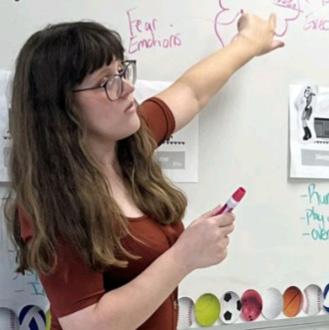
Destiny Sears (Psychology) is currently working for a nonprofit, teaching children about healthy relationships and boundaries, across south San Antonio school districts.
2025
Shaca Sweet (Master of Public Administration) was inducted into Pi Alpha Alpha, the International Honor Society for Public Affairs and Administration. She is excited to serve as a Program Coordinator for the UT San Antonio Welcome and Events Center.

